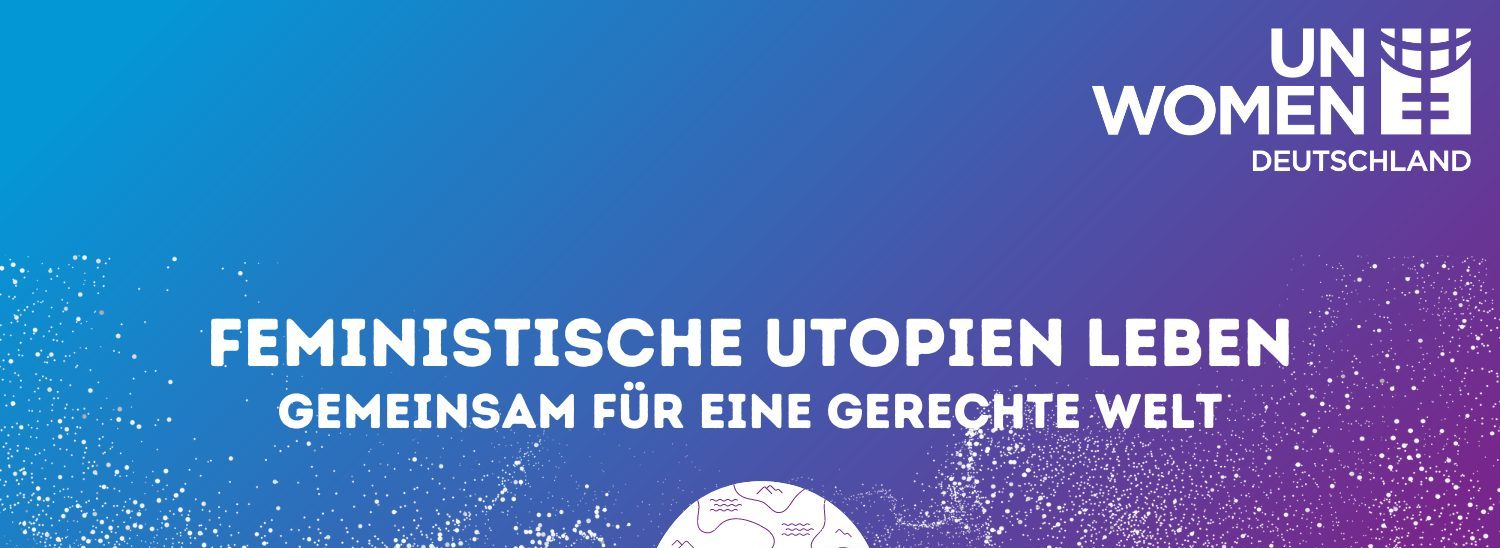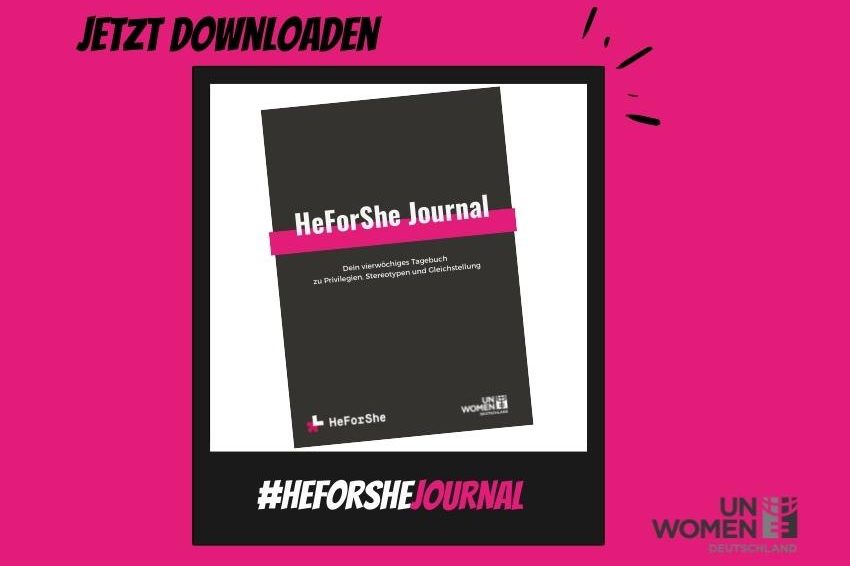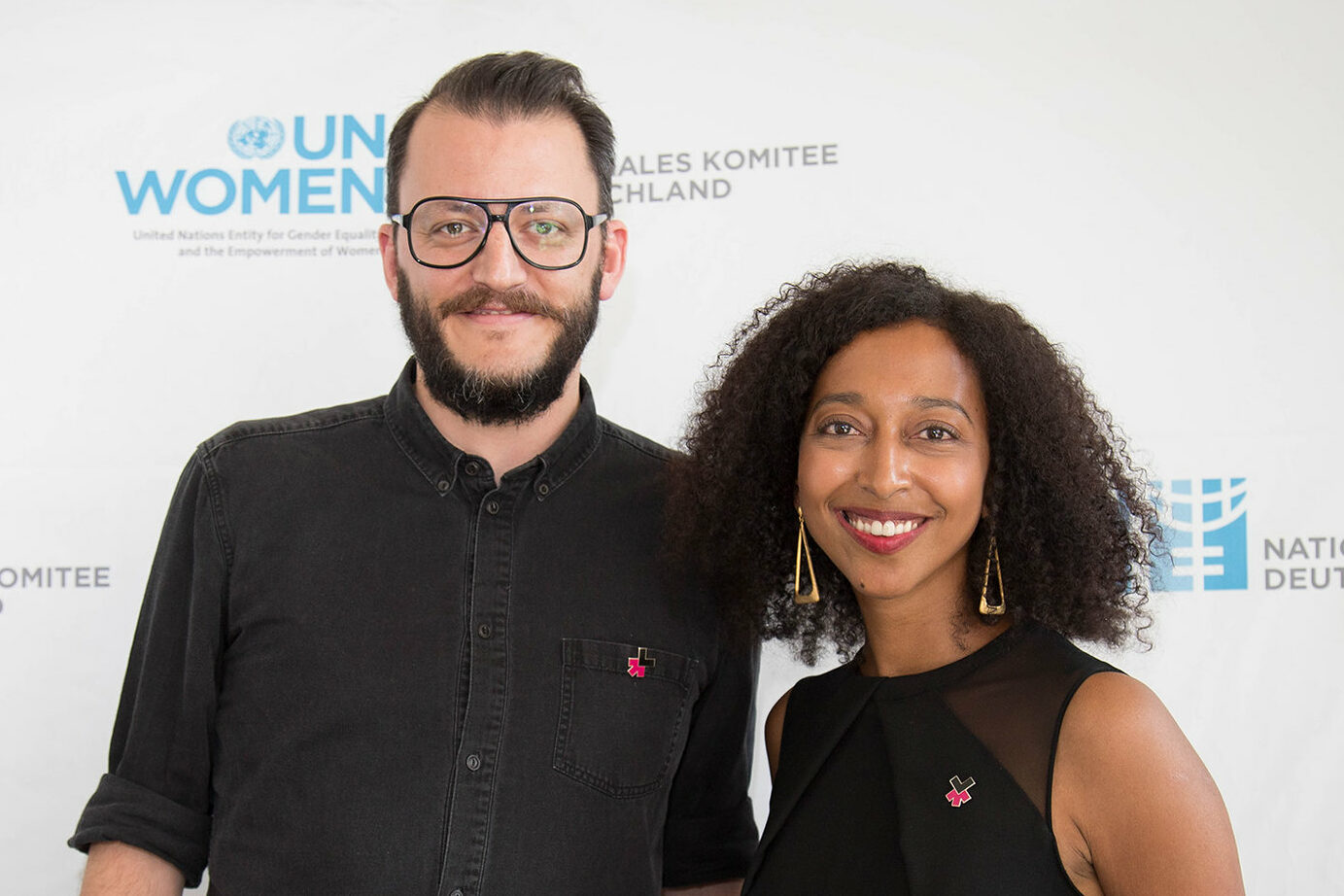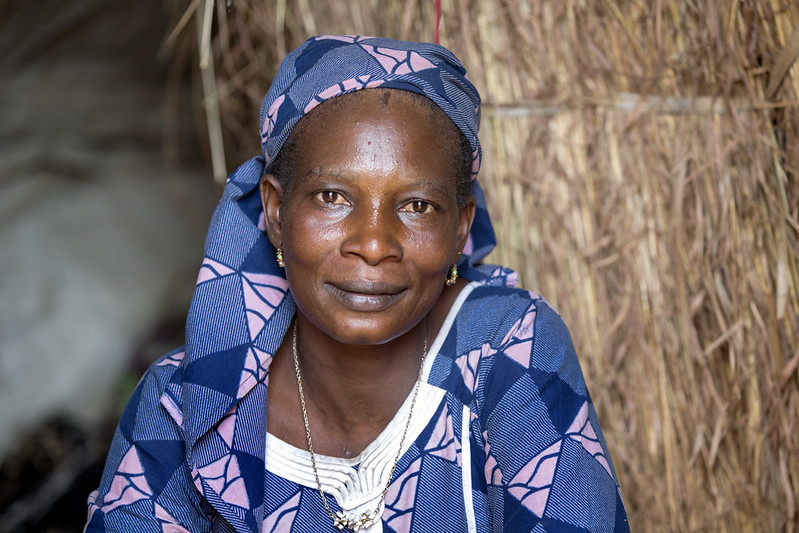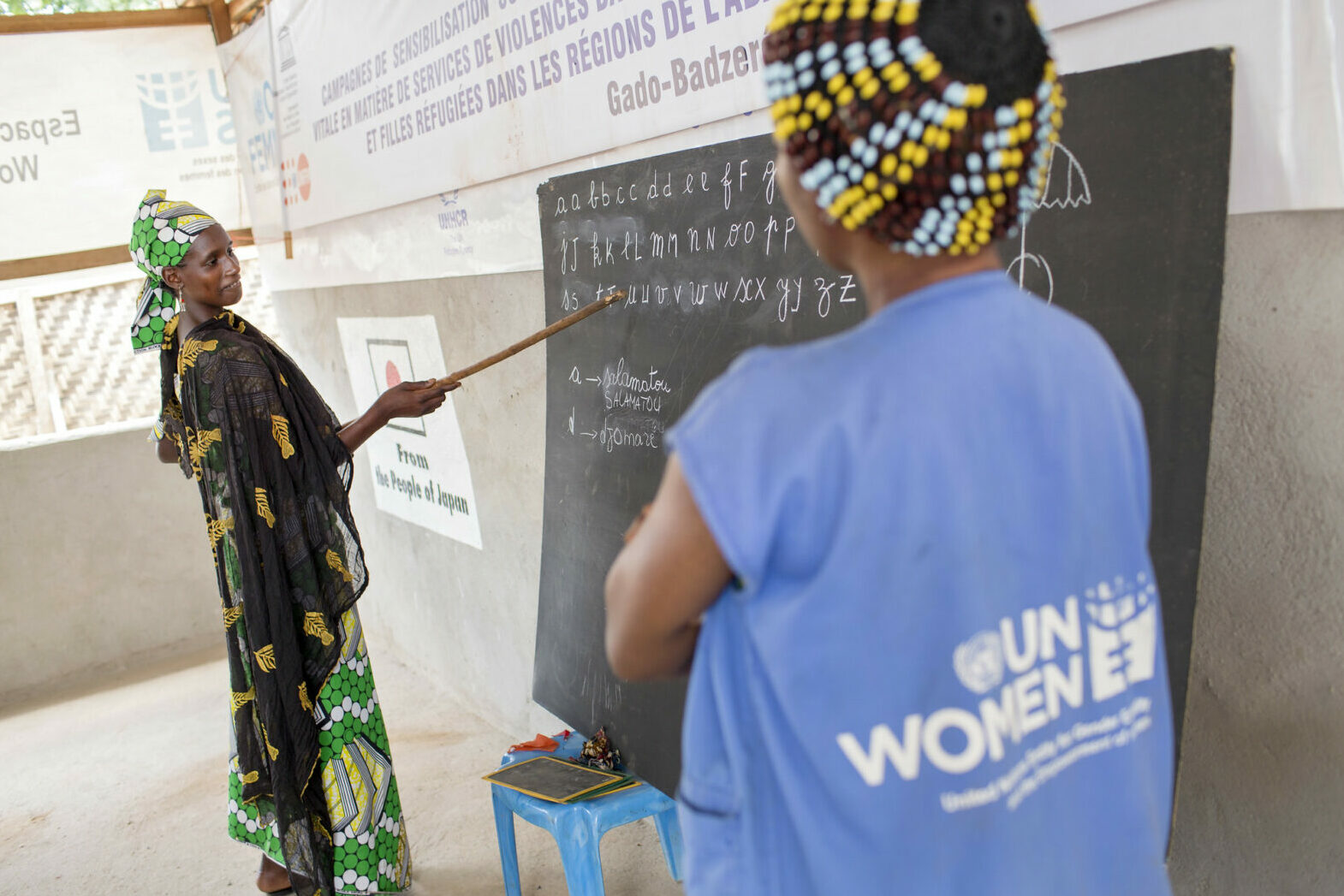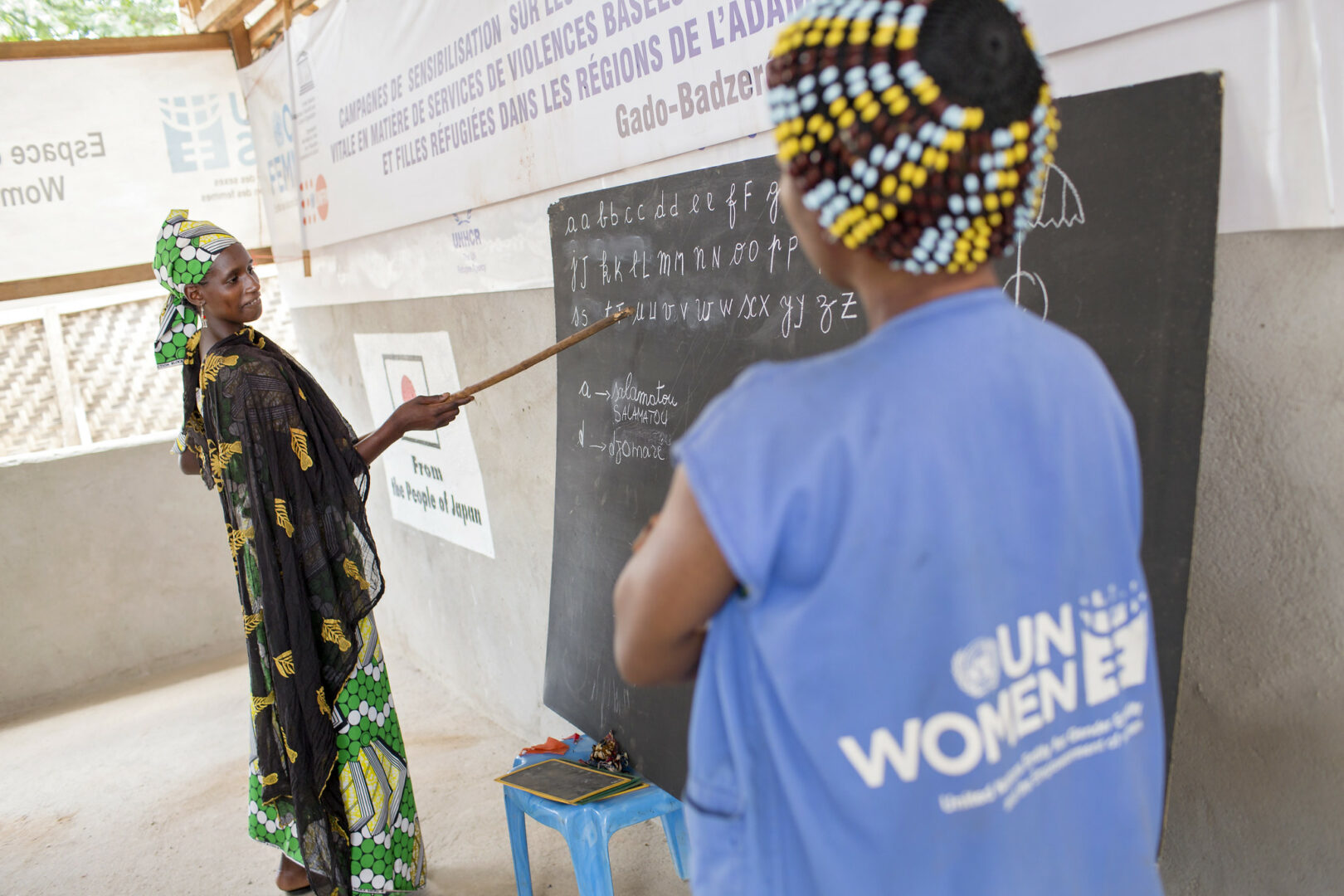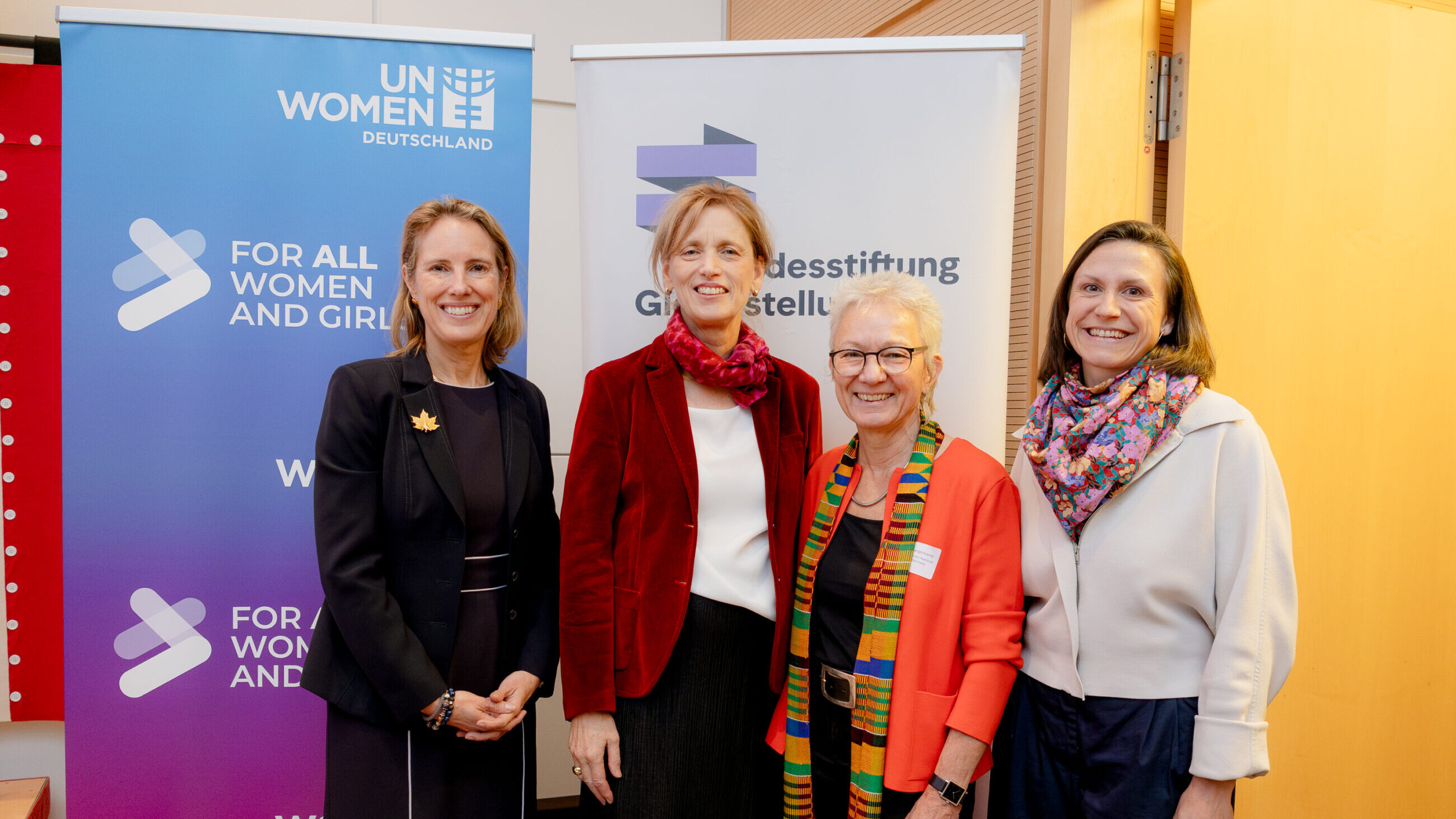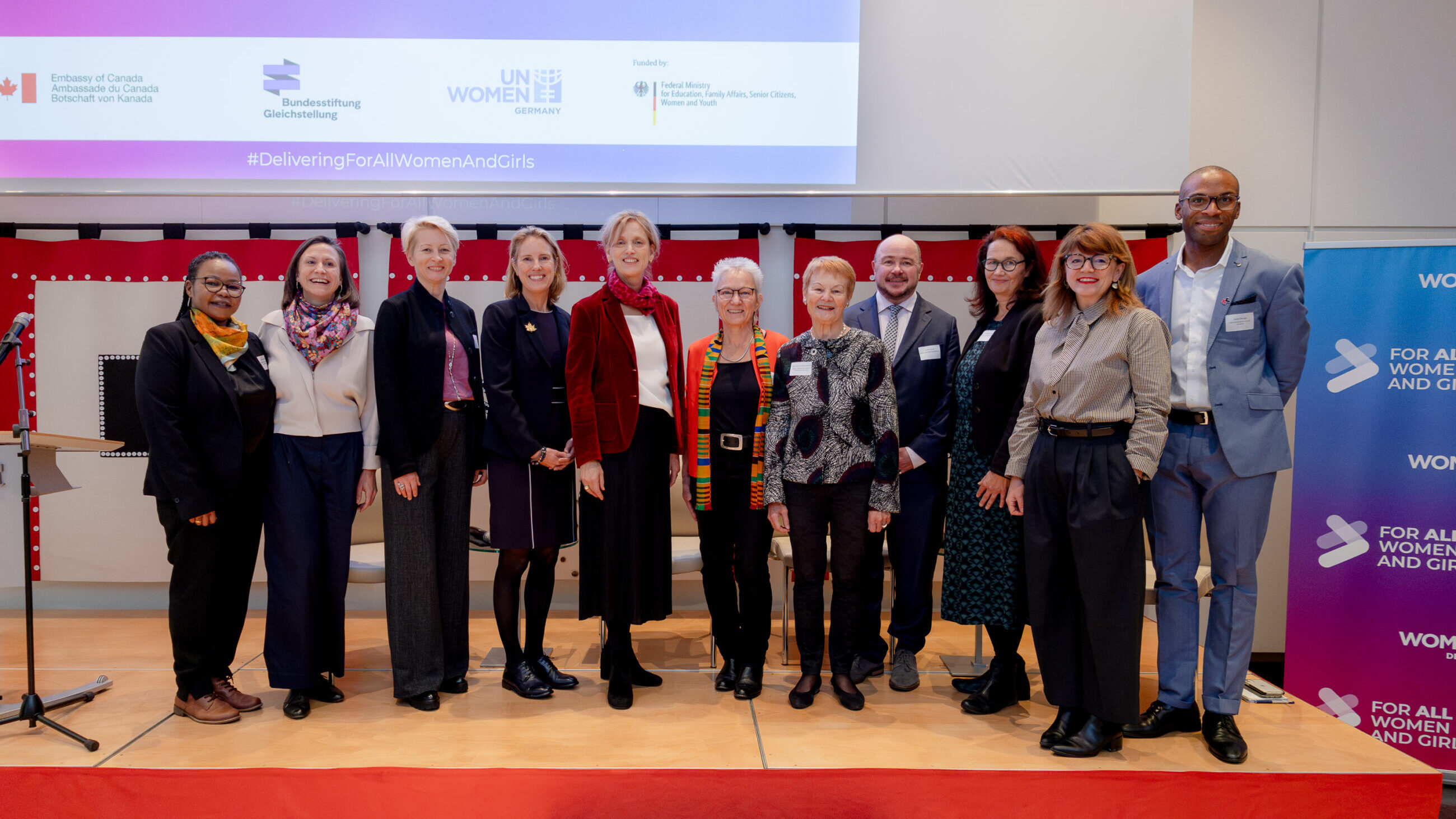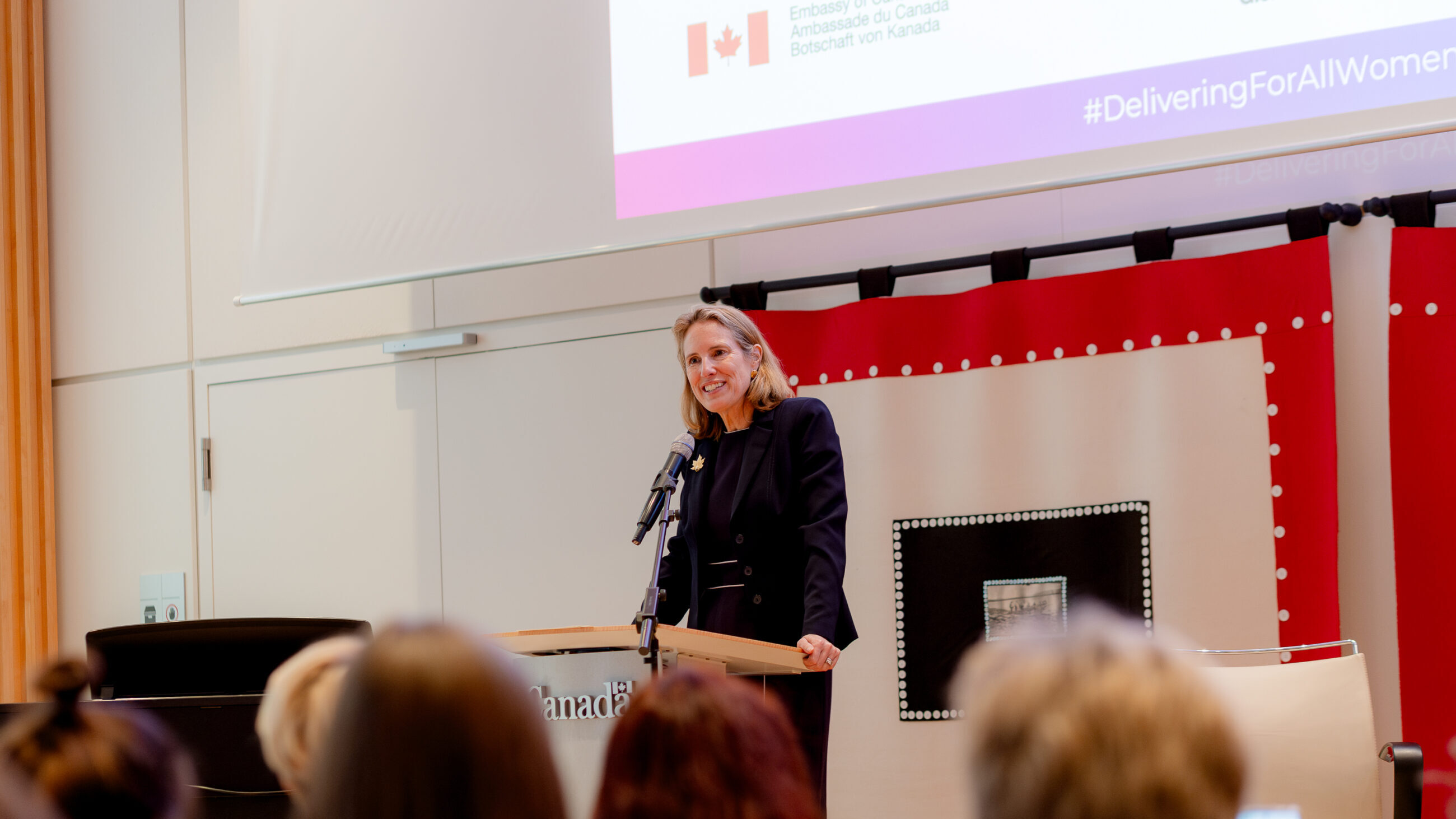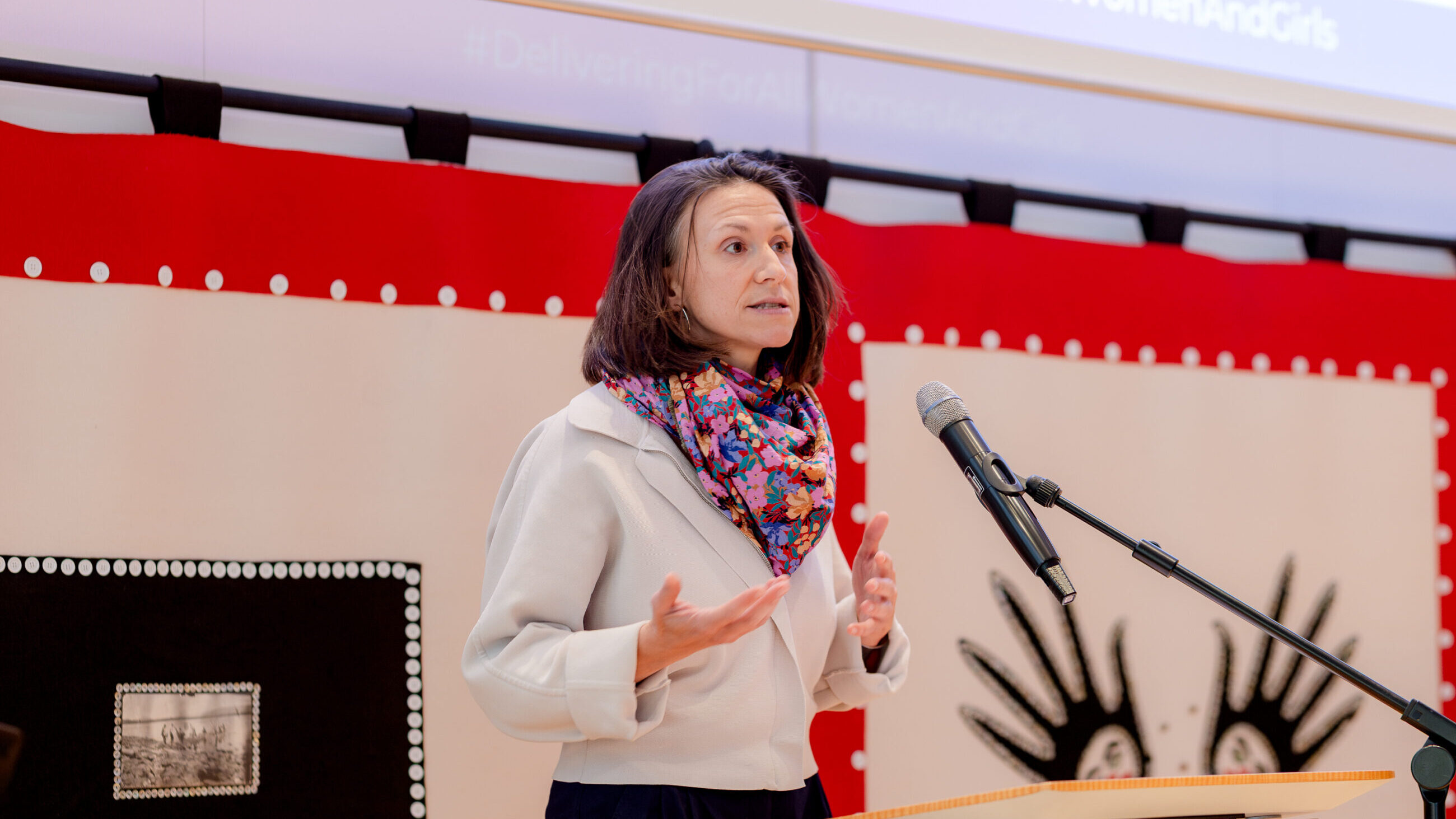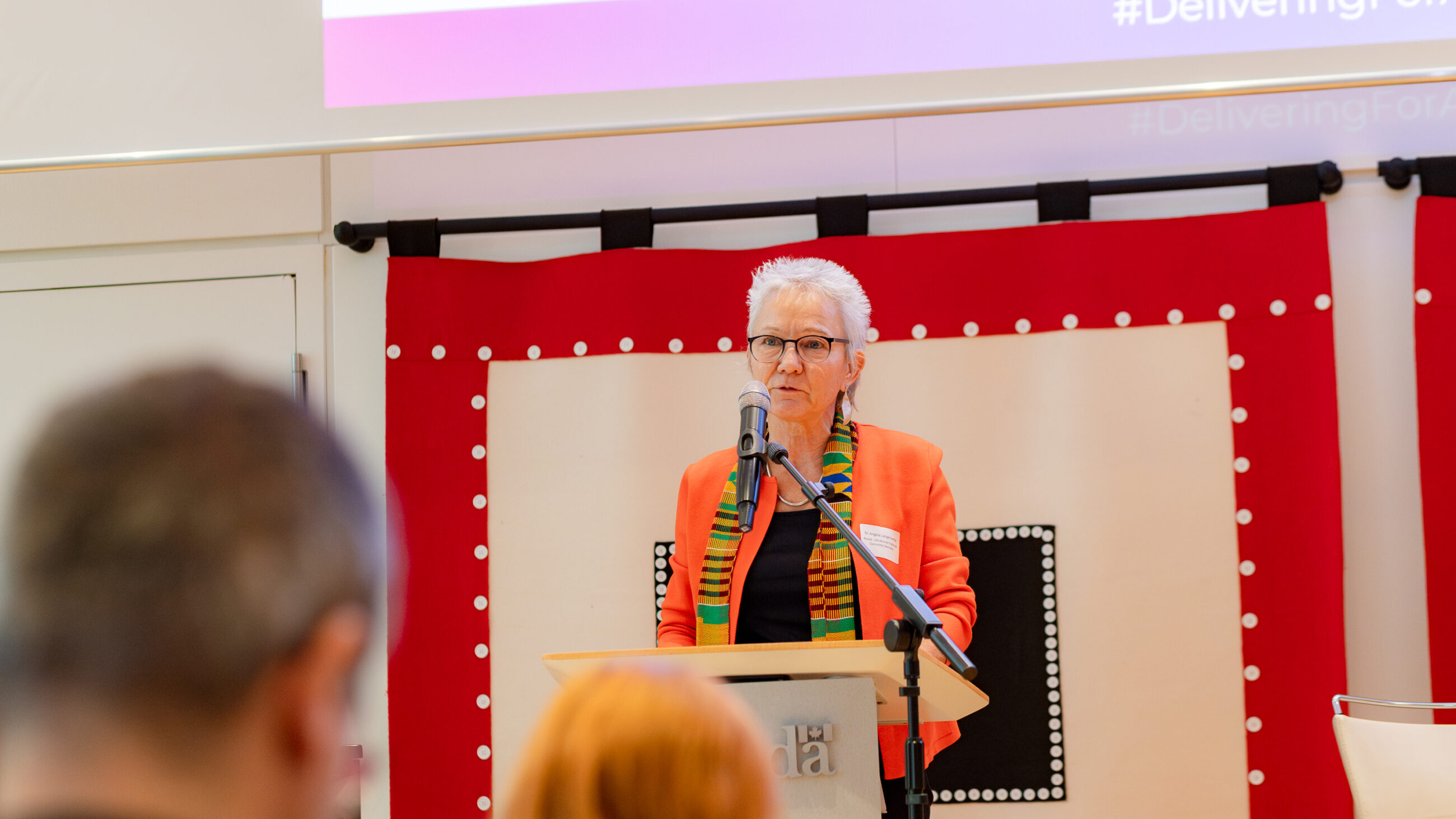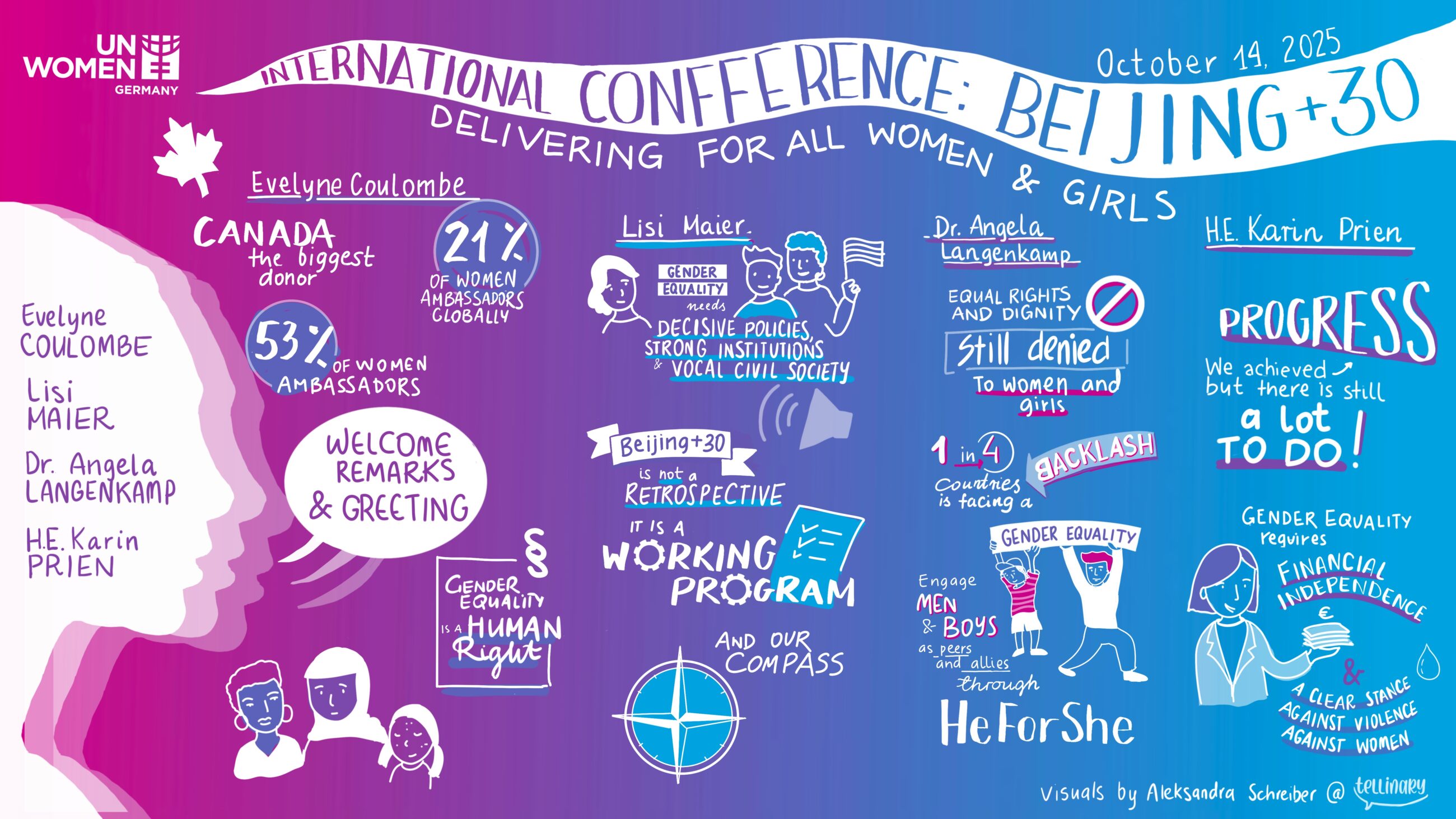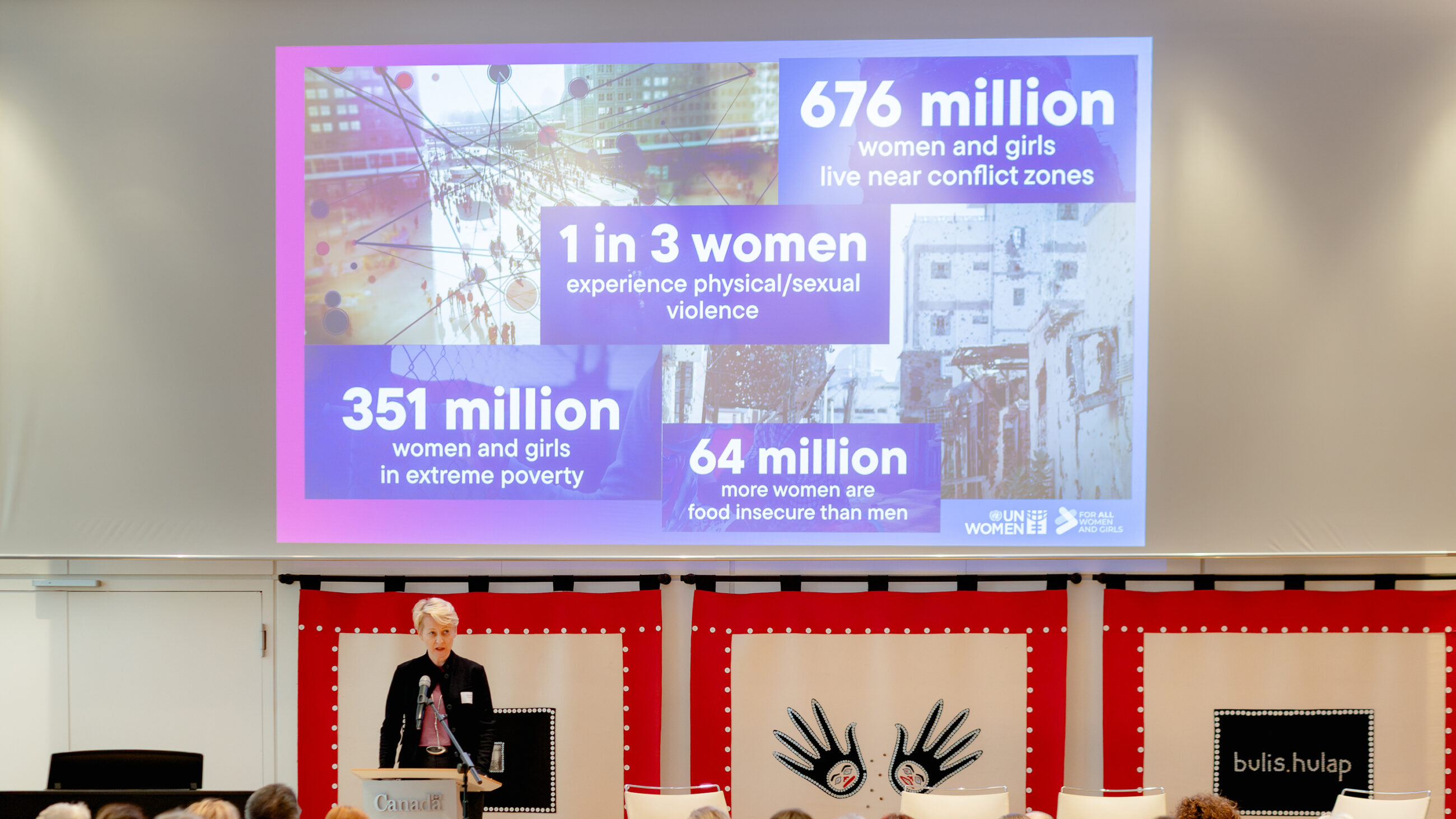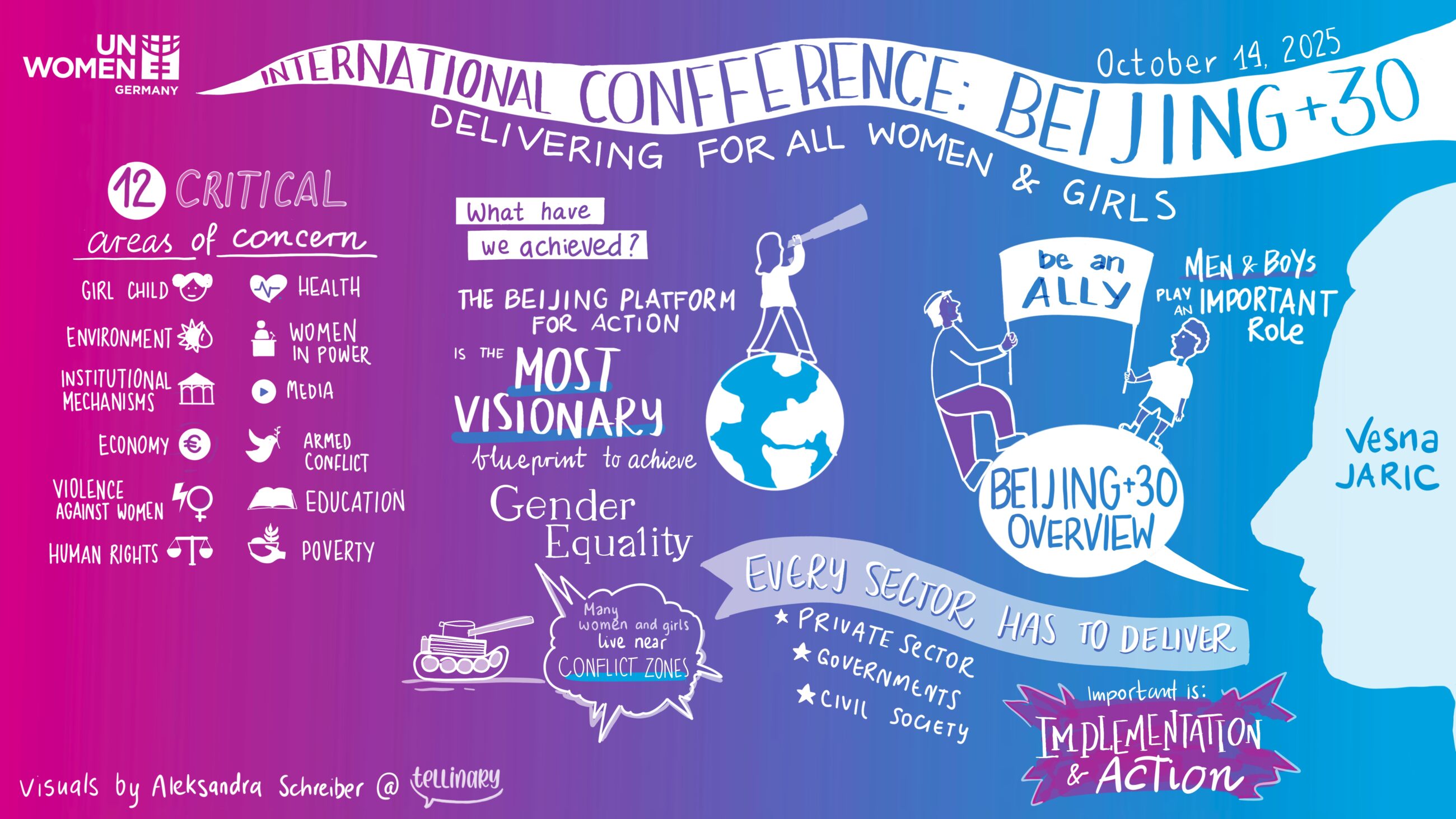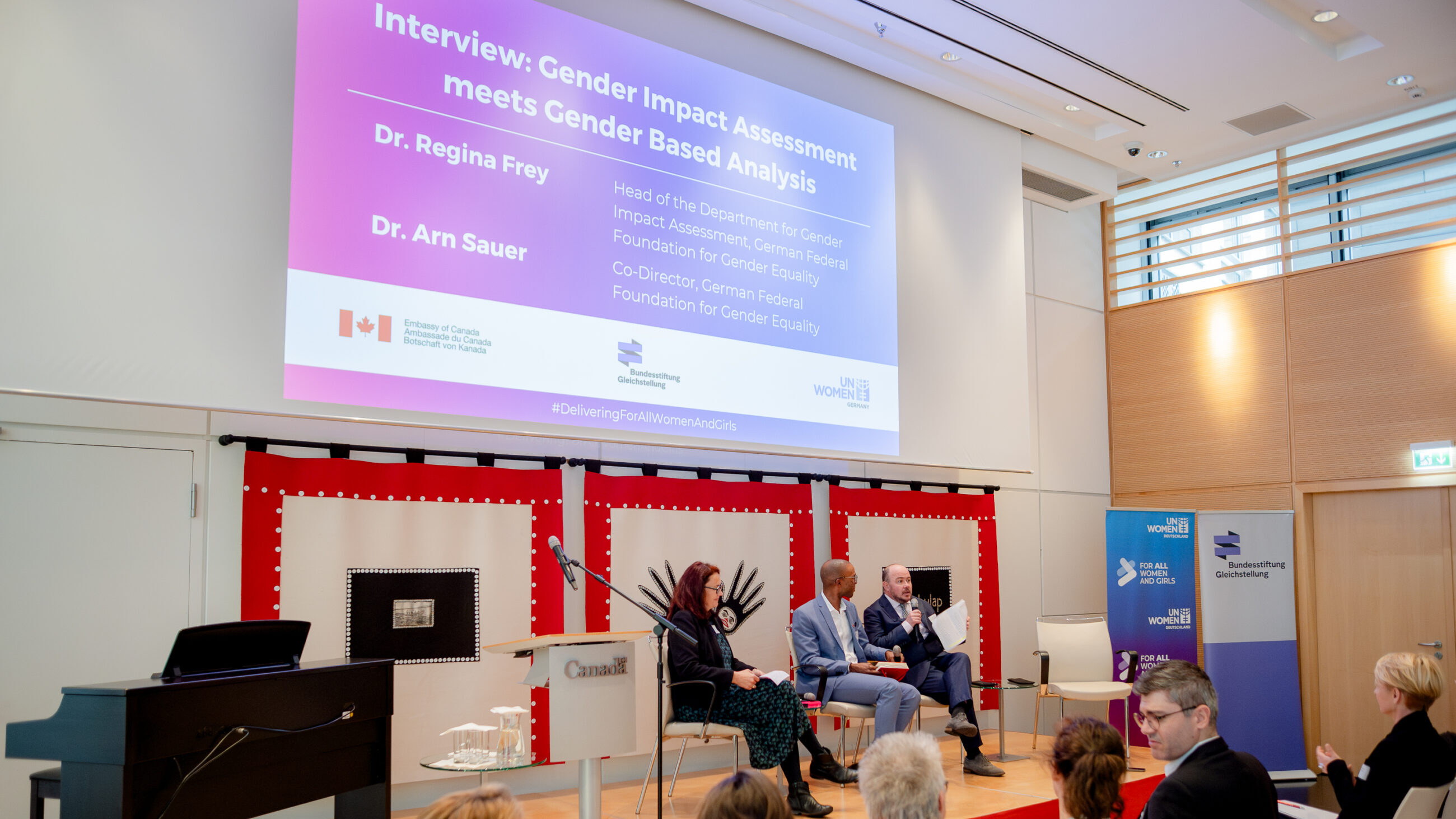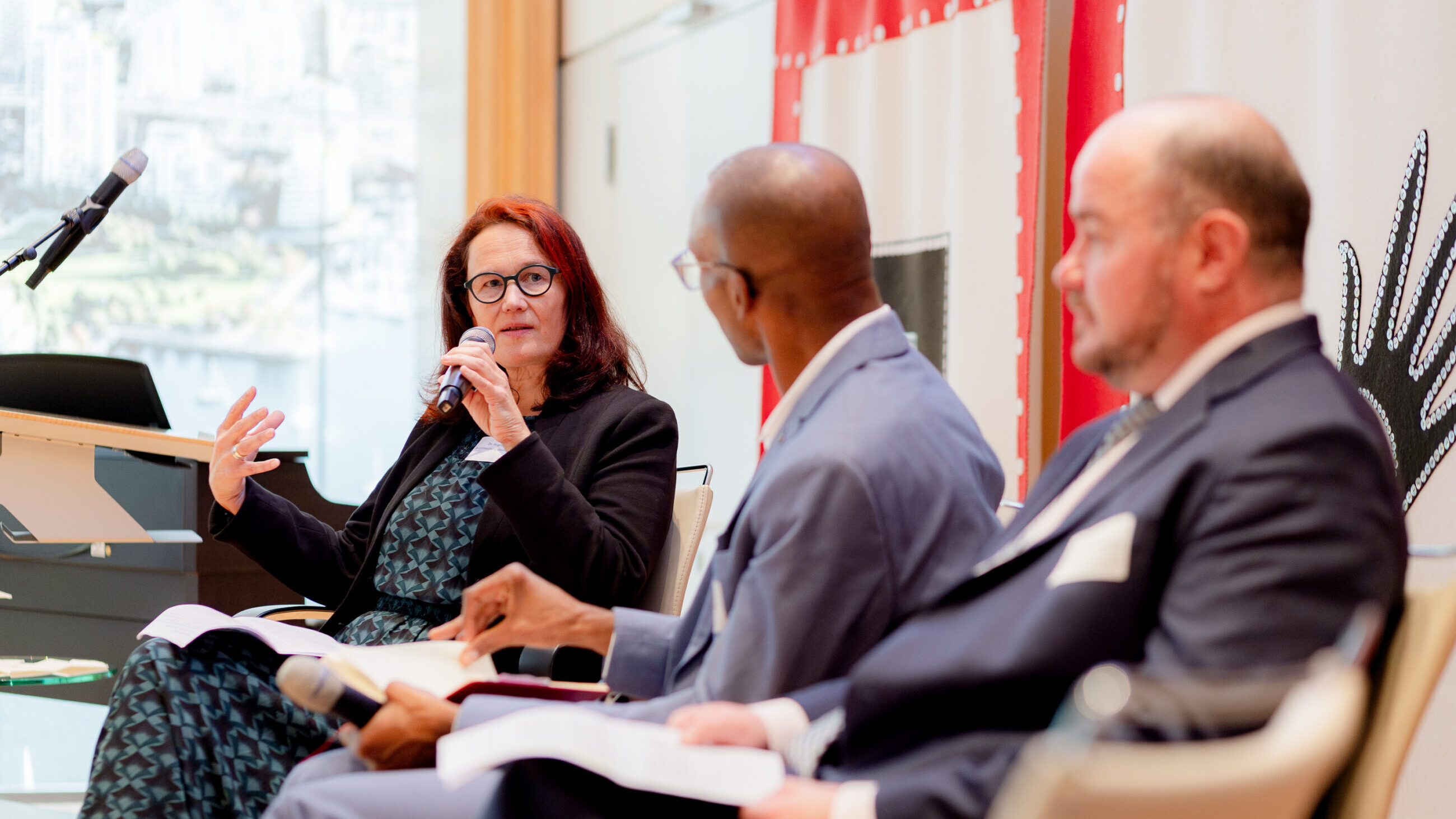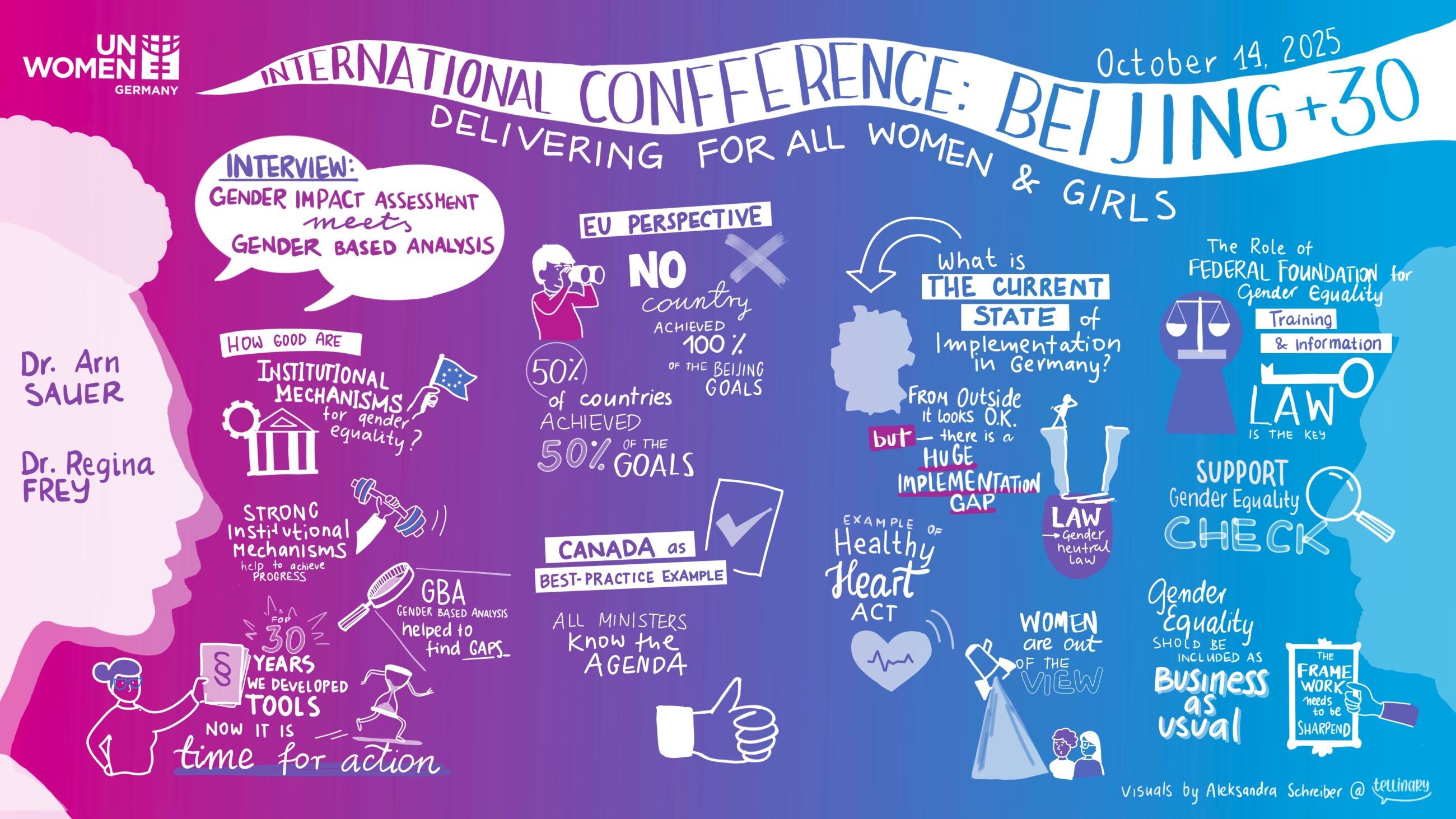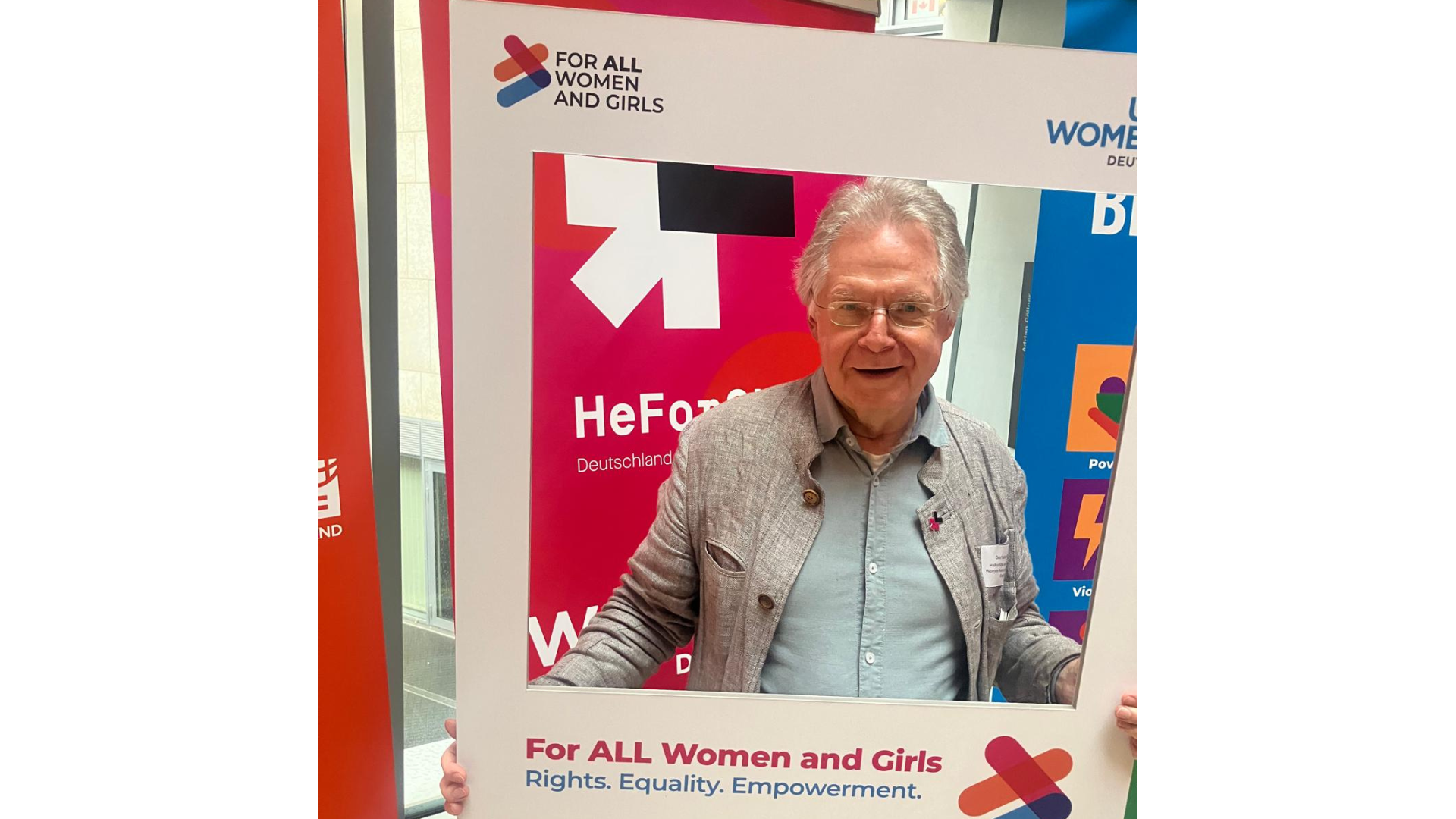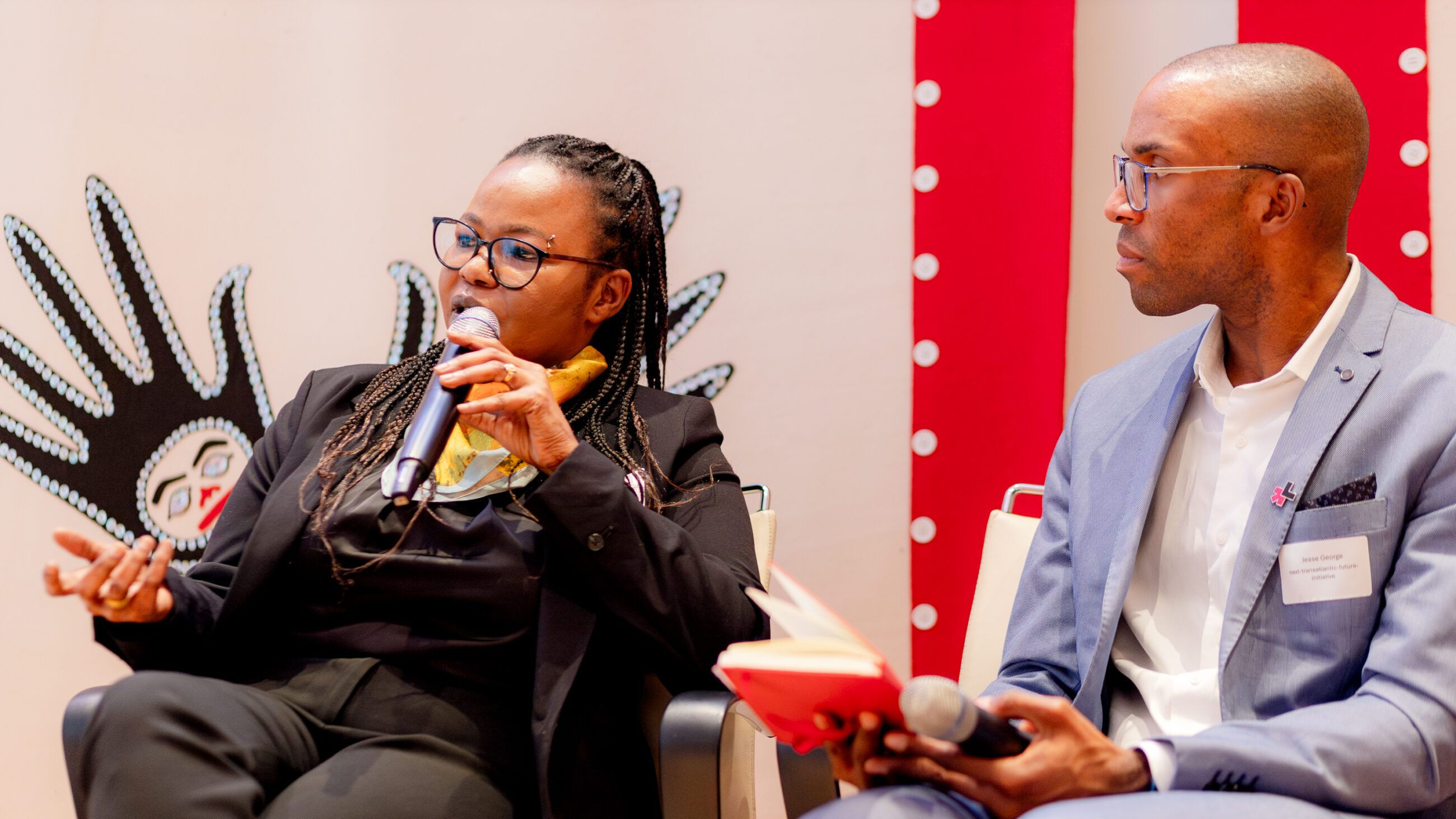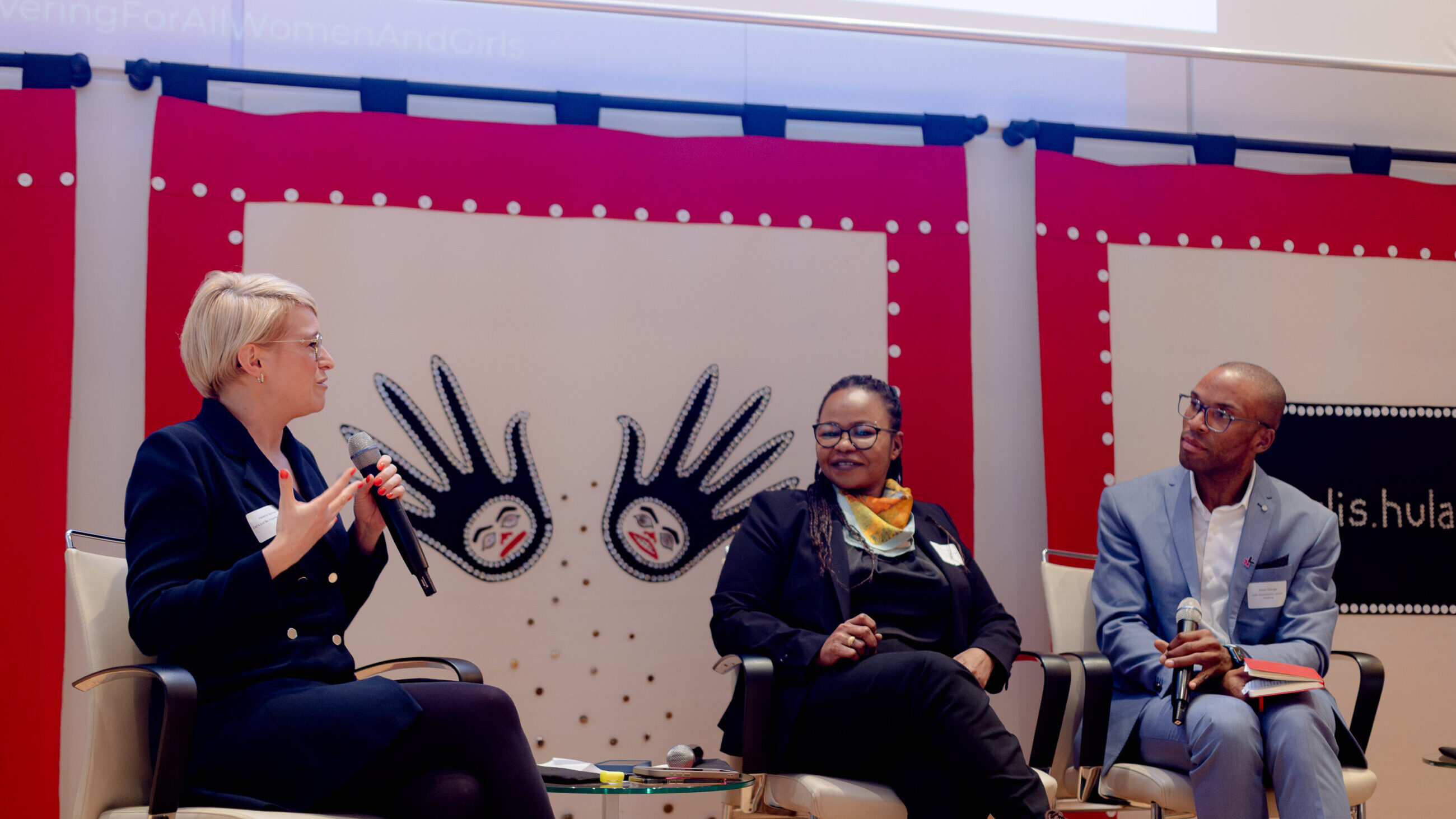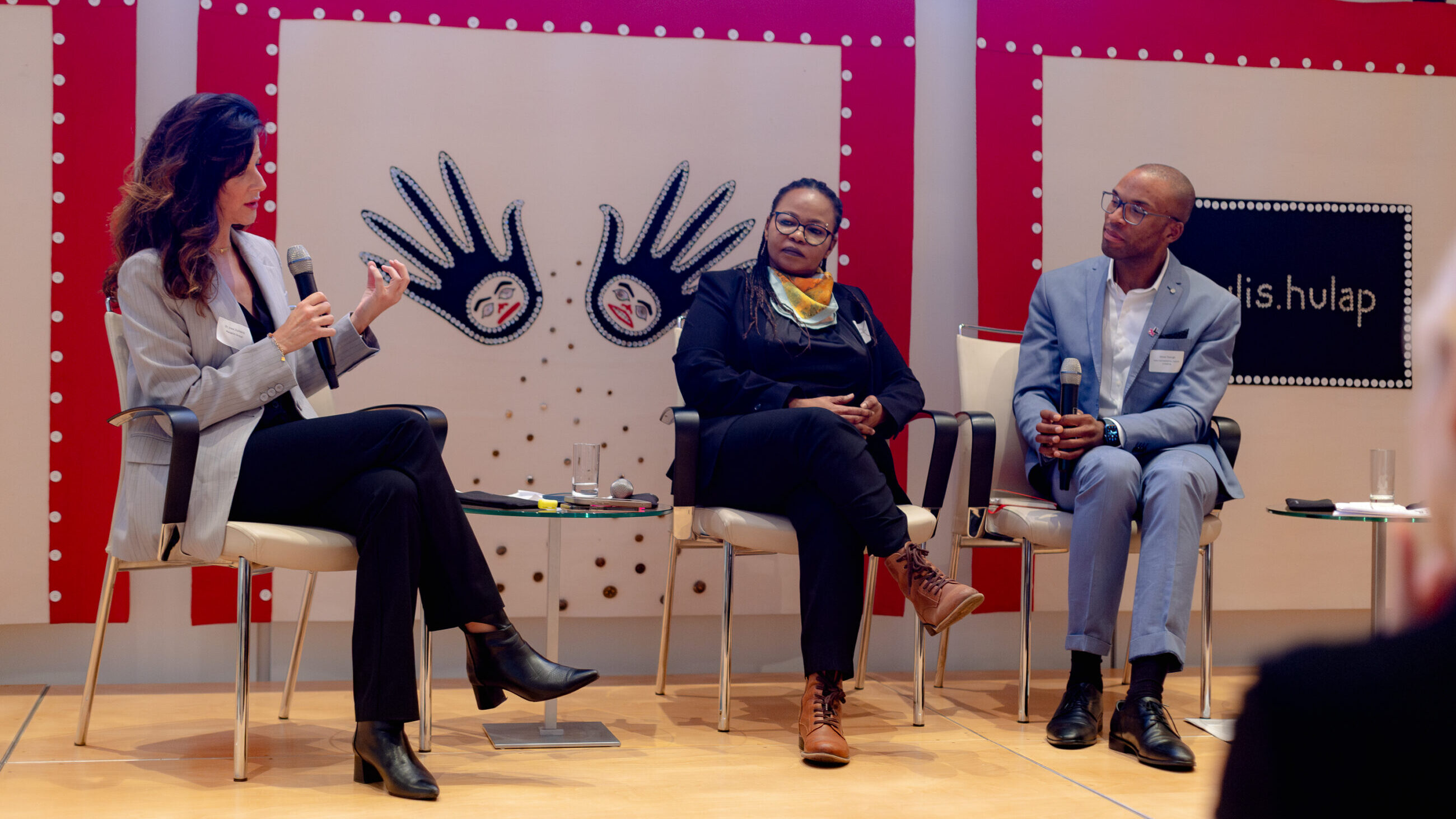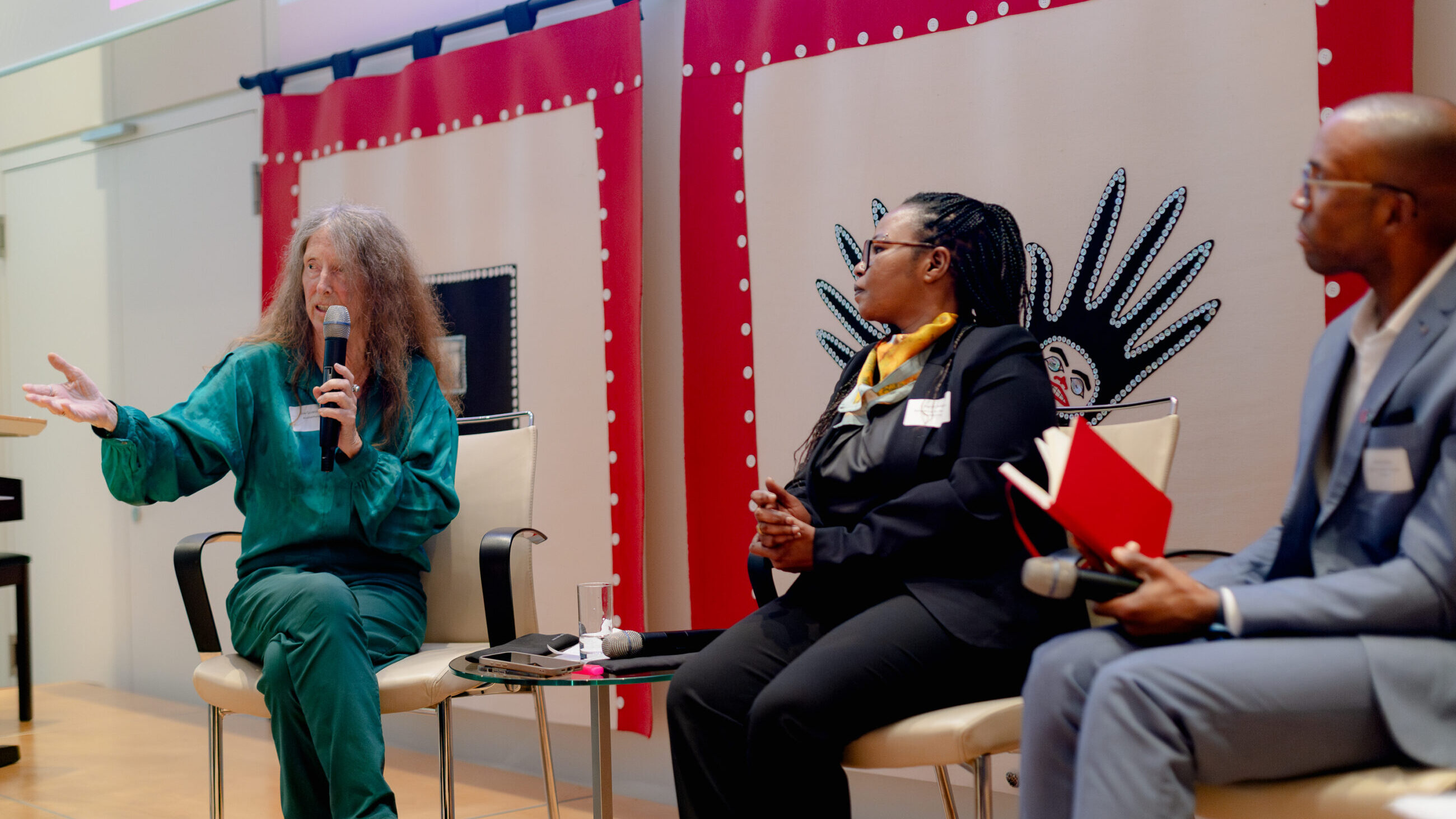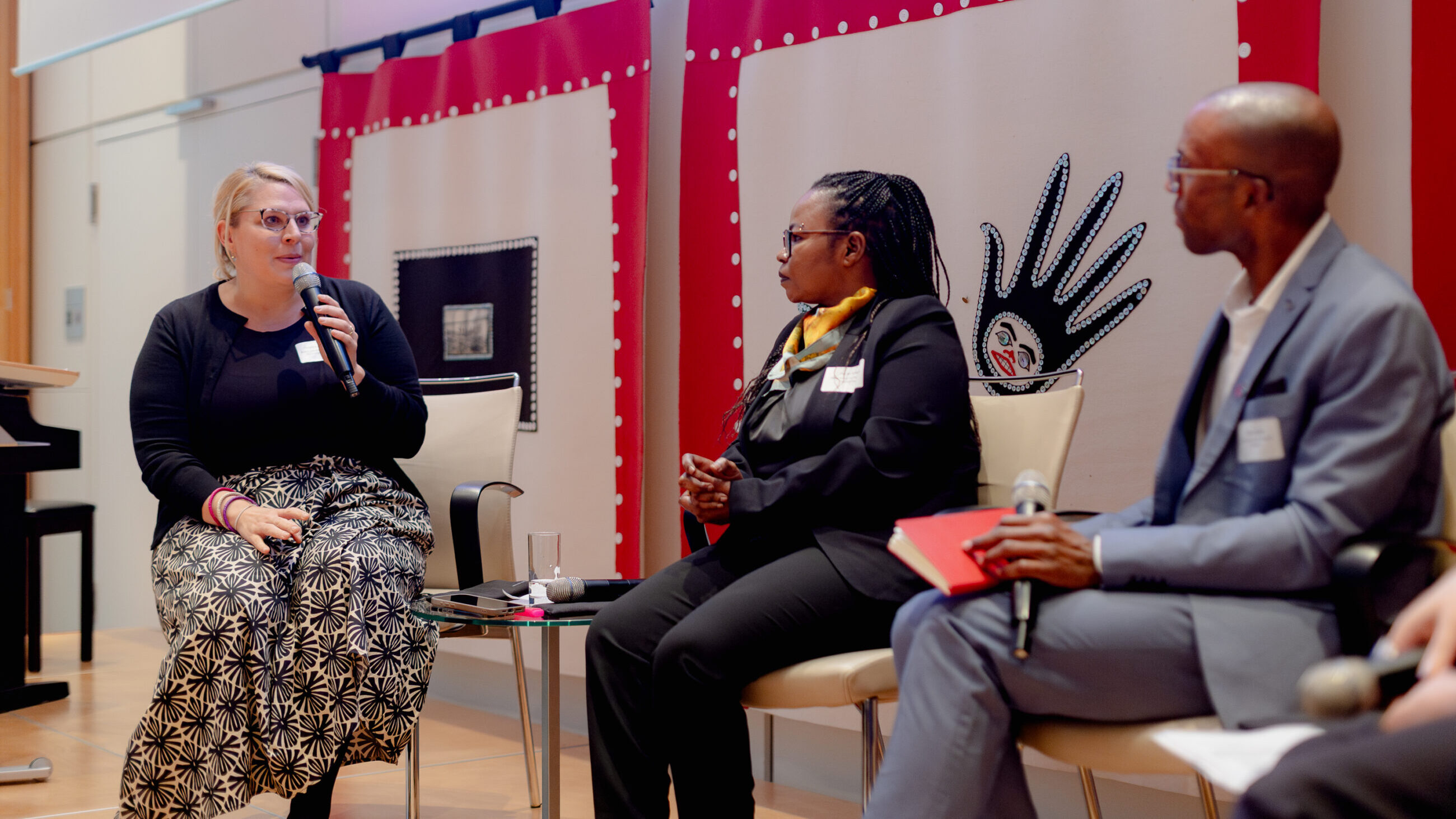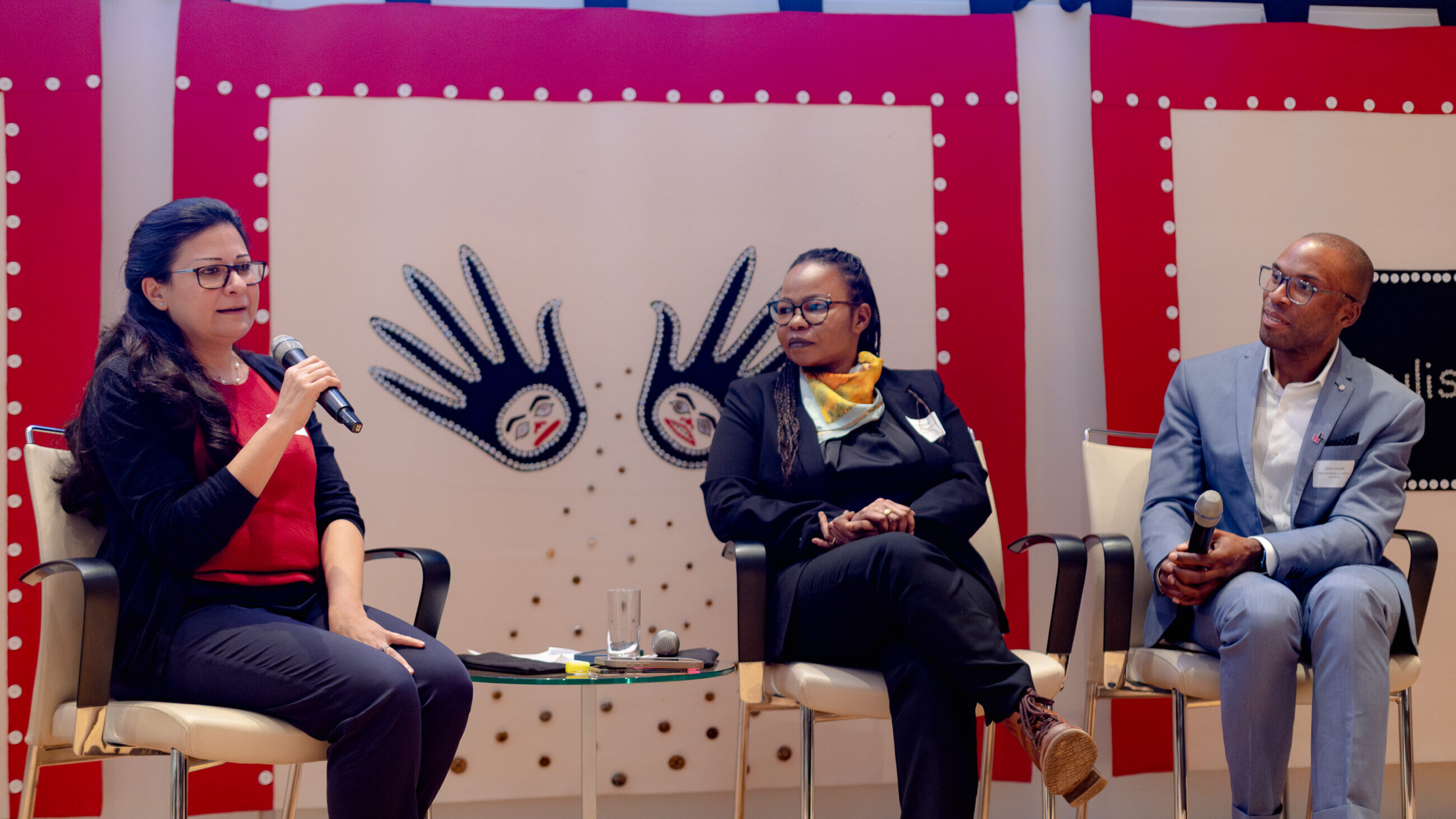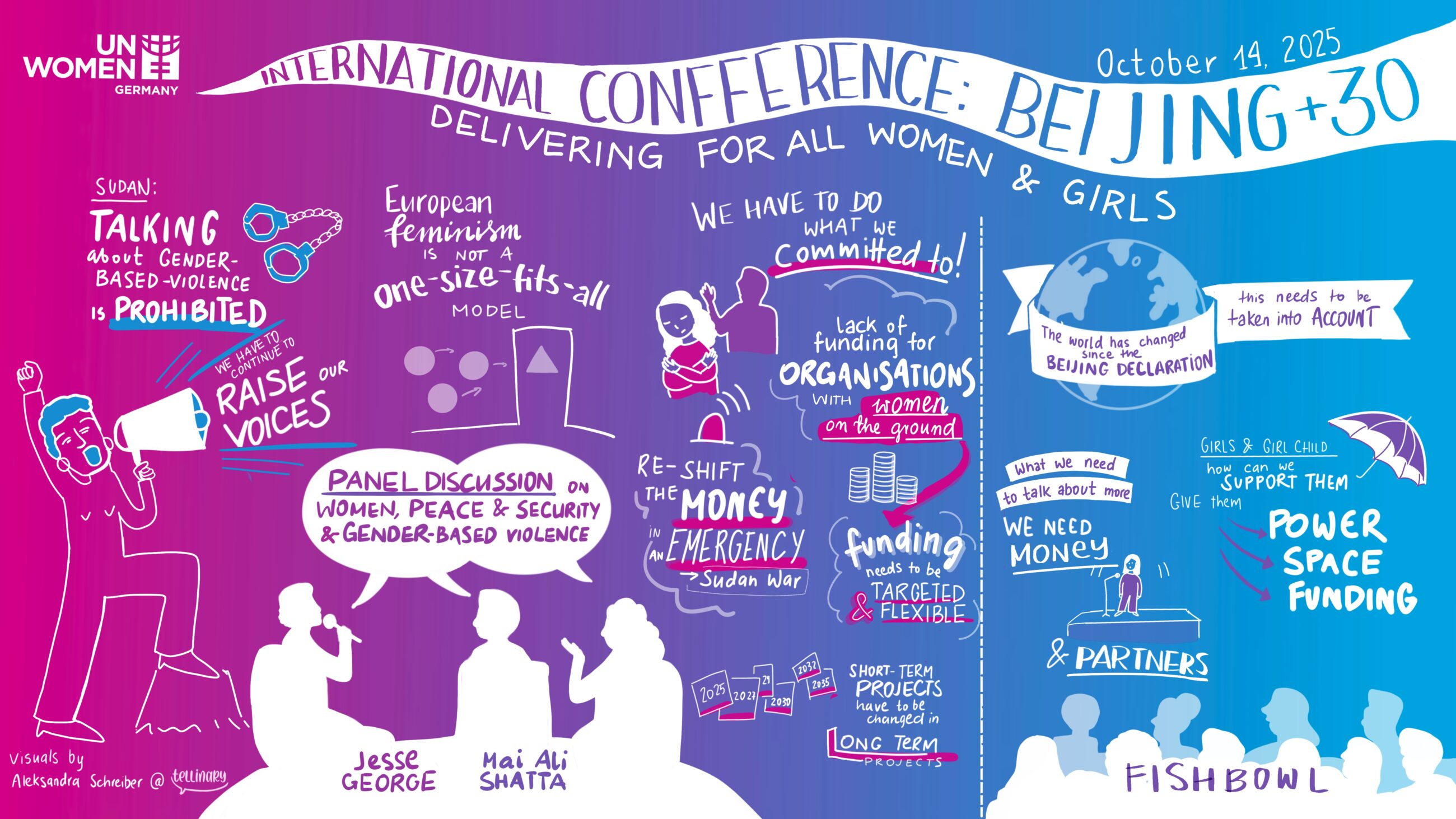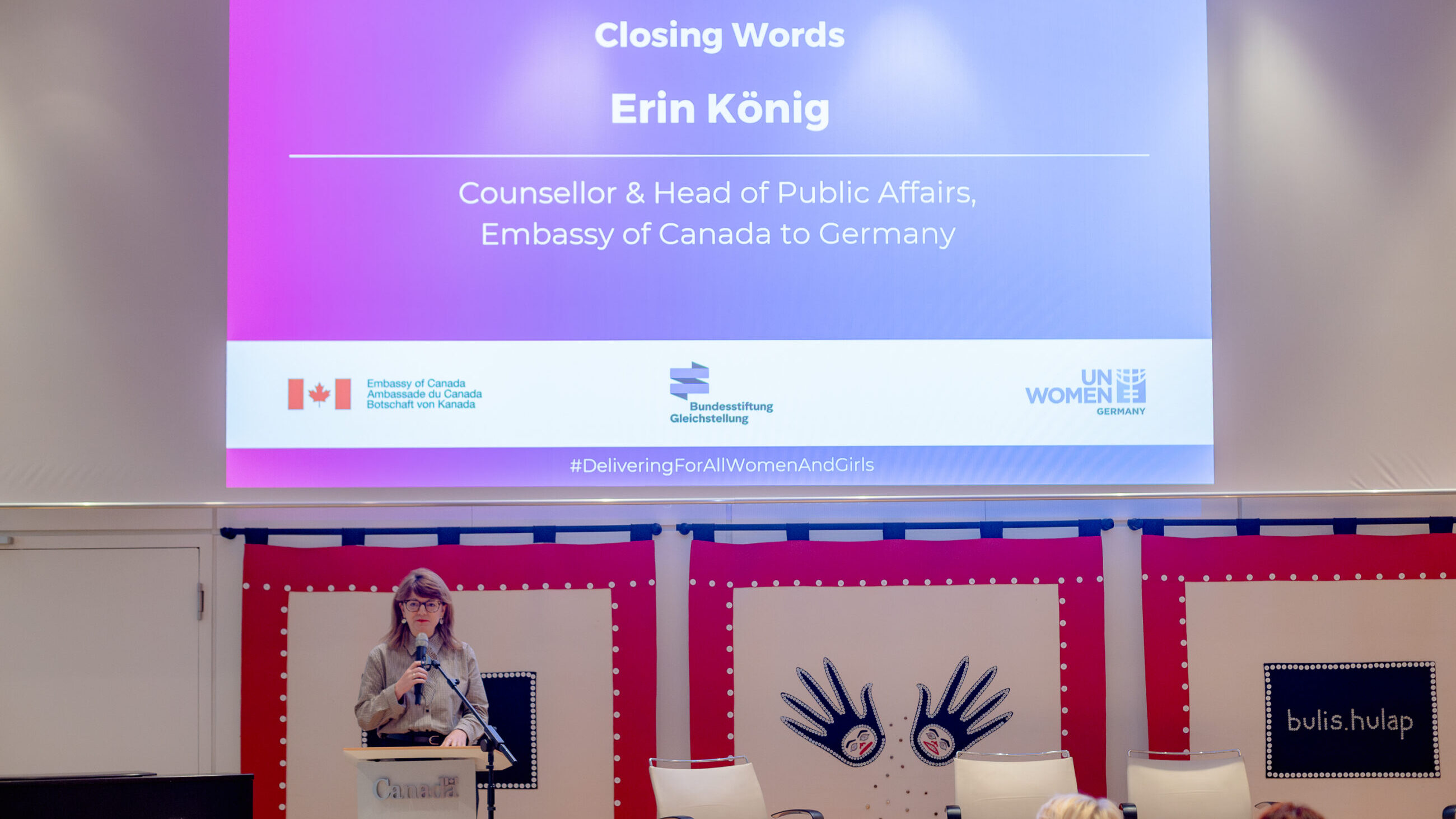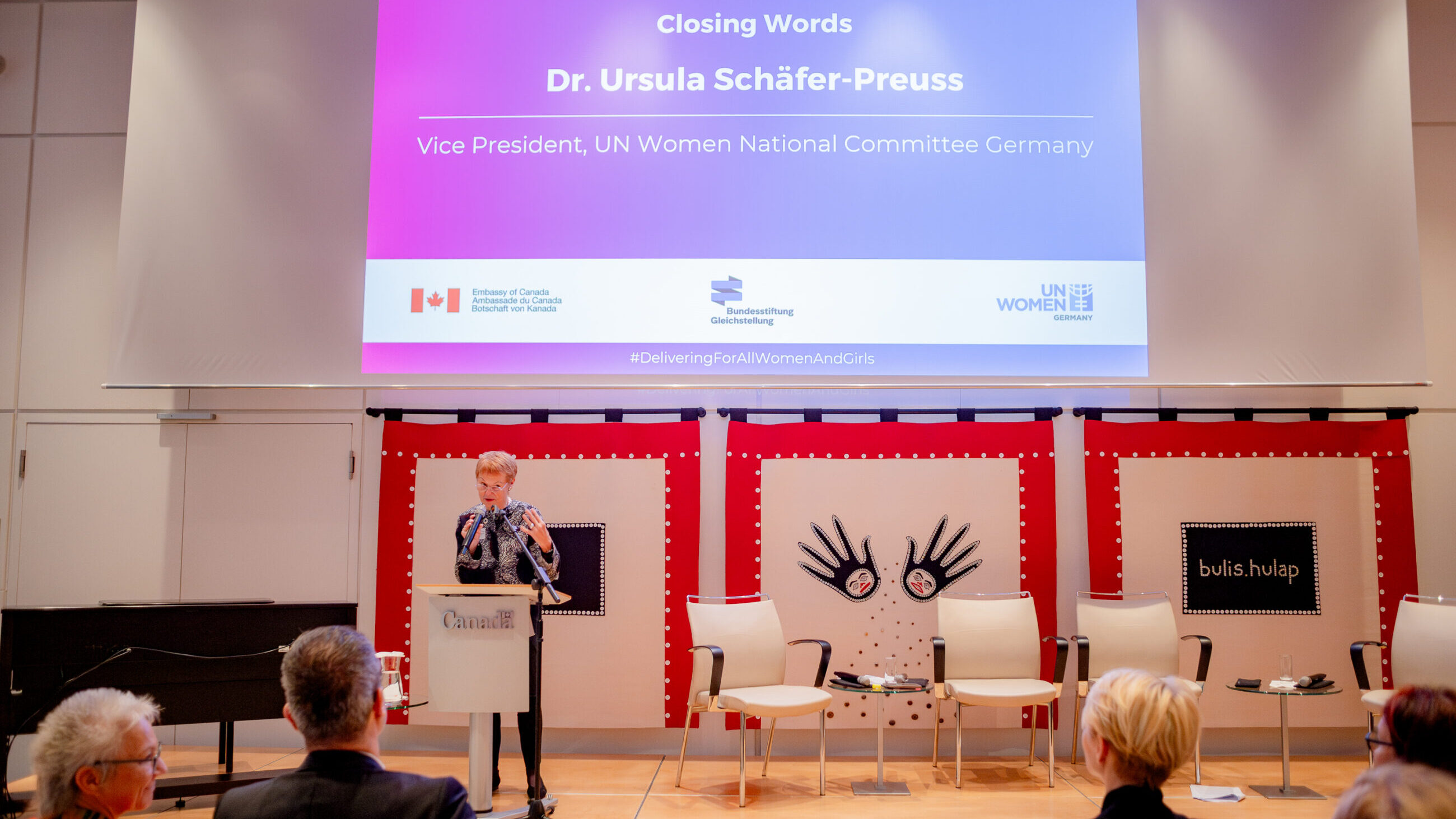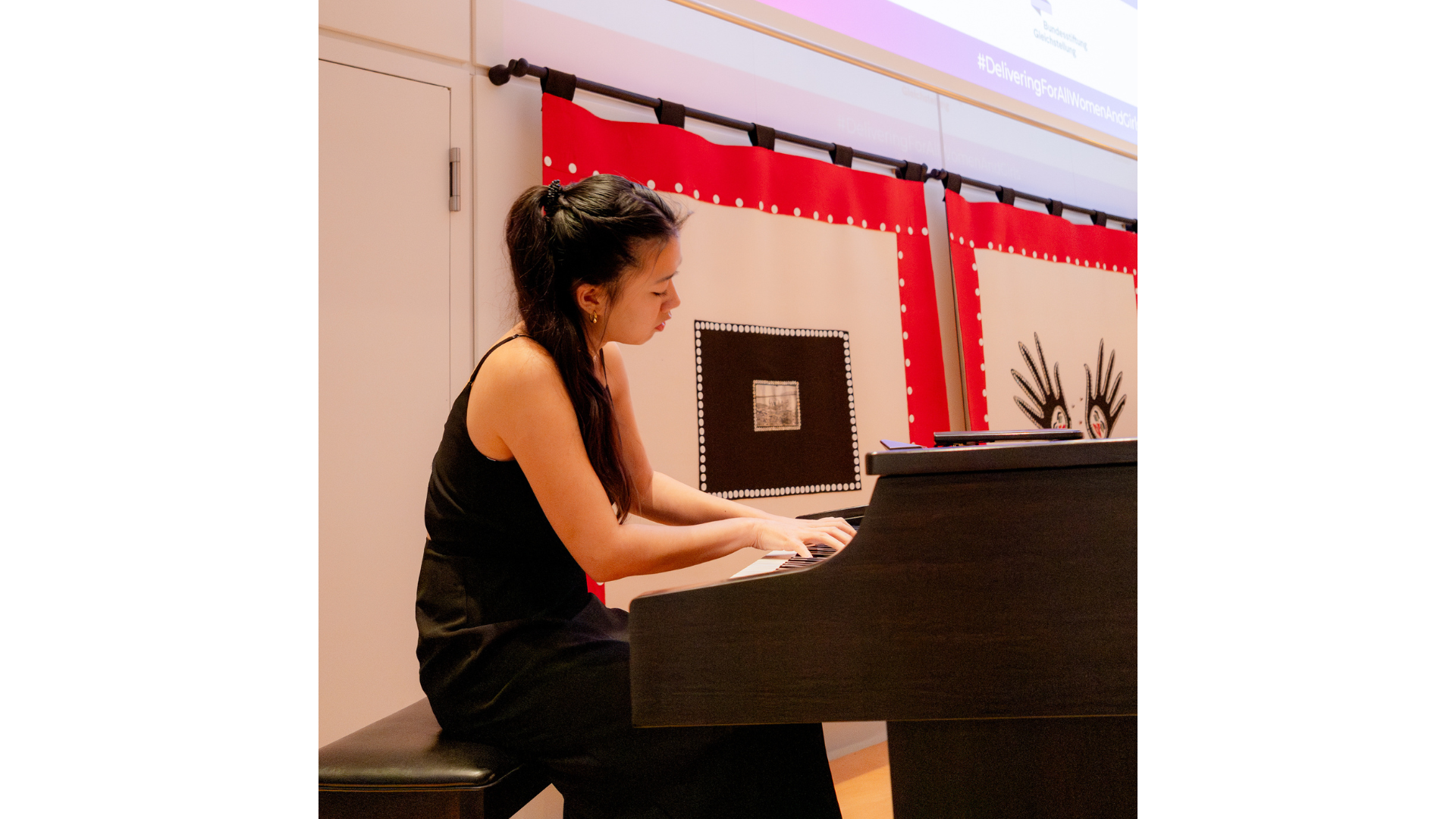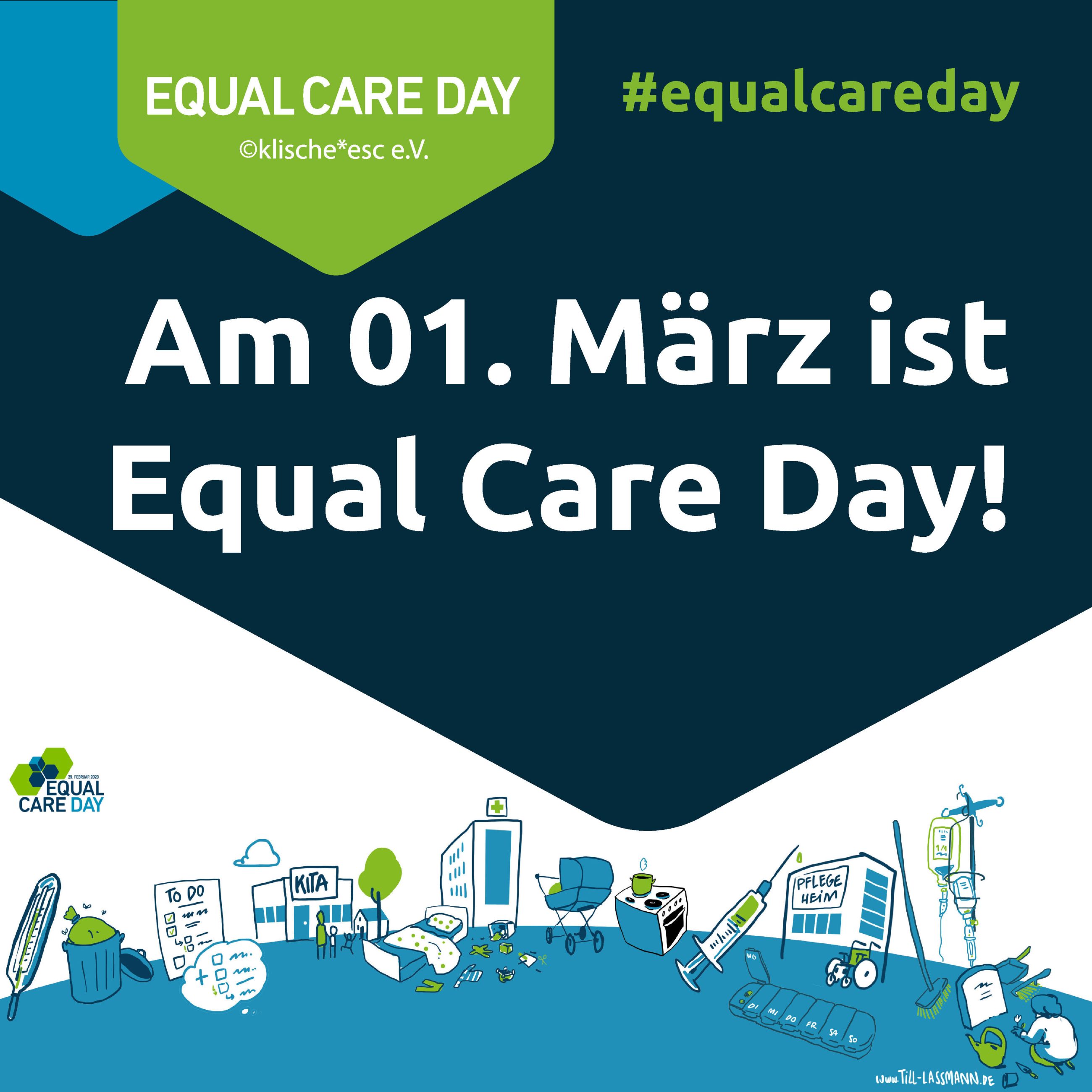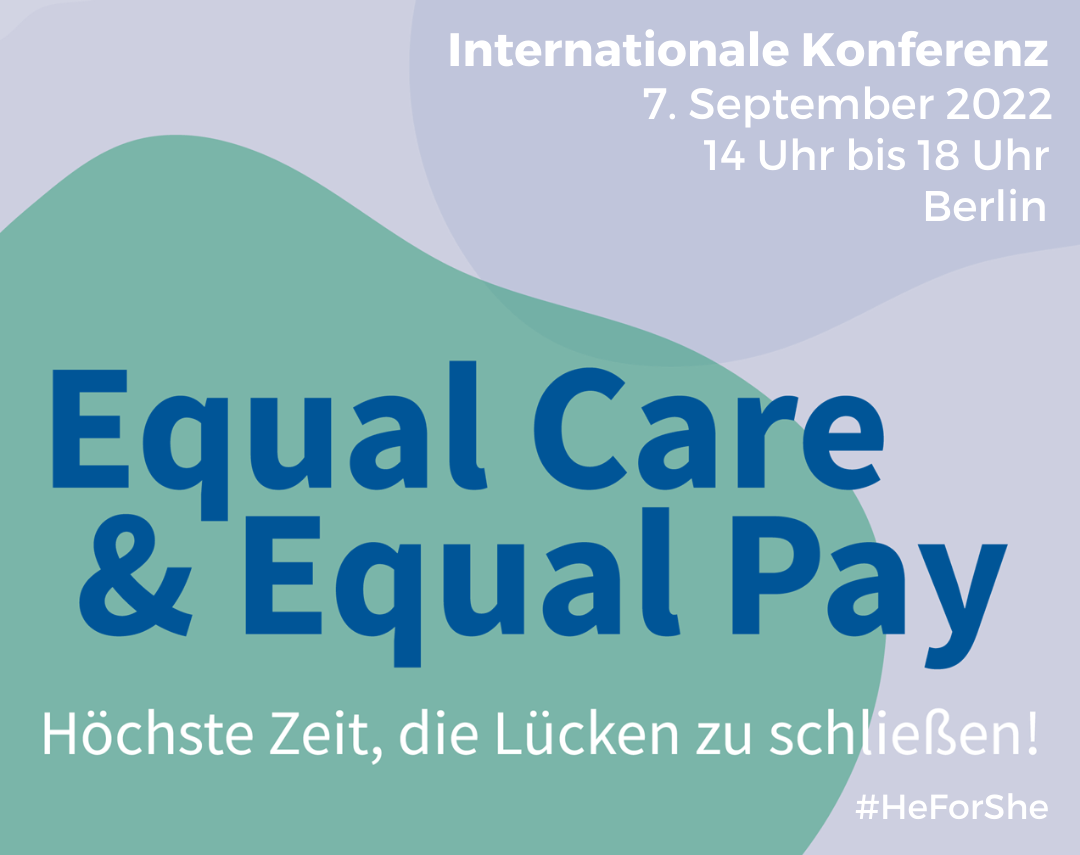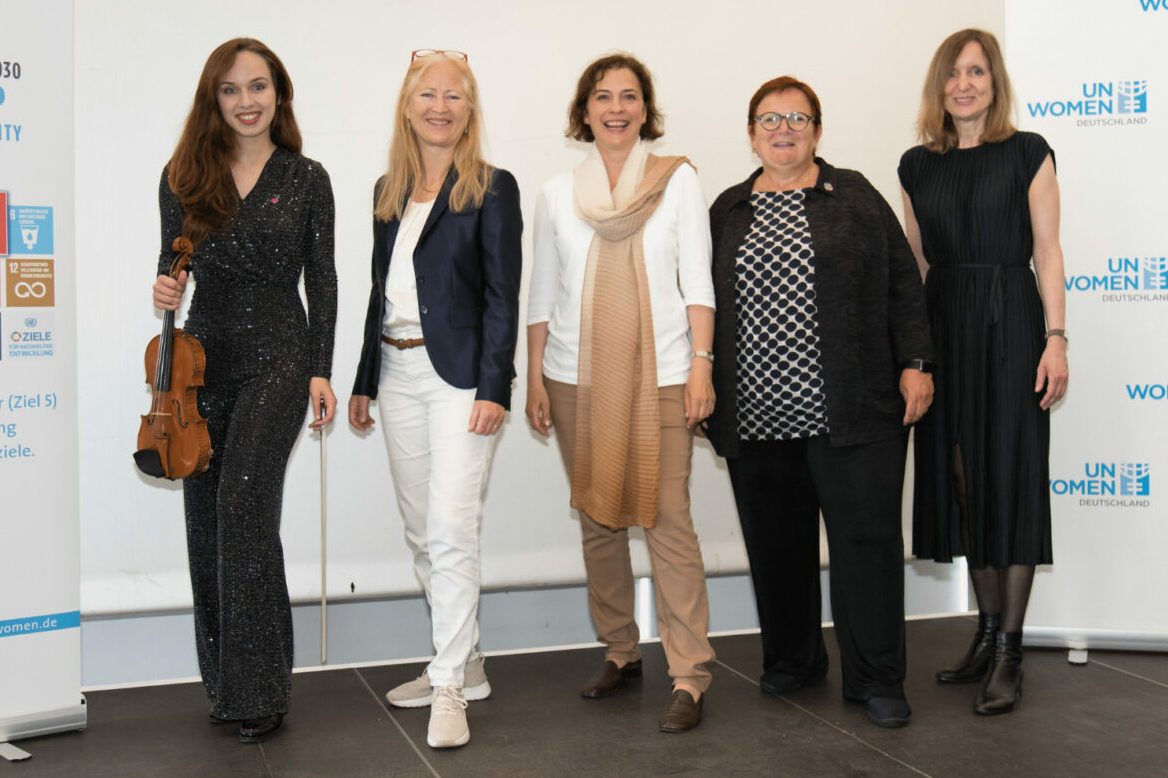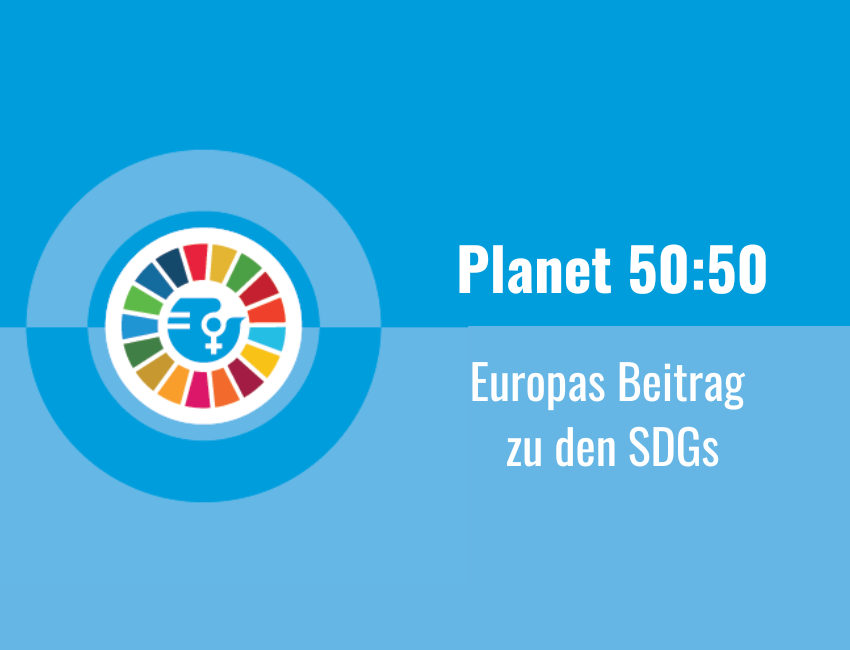
International Conference: Beijing+30: Delivering for all women and girls
Therefore, UN Women National Committee Germany, the Embassy of Canada to Germany, and the Federal Foundation for Gender Equality have joined forces to work out what is needed to do to deliver on the promises made for all women and girls.
Lisi Maier (Co-Director, Federal Foundation for Gender Equality) emphazised that the BDaPfA was a revolutionary achievement. Yet 30 years later, it remains unfinished, but it is still our shared compass and work-program. The Federal Foundation for Gender Equality was established in 2021 as a public law foundation – as one of those institutional mechanisms envisioned in the PfA. When we design tools and measures around diverse realities – intersectionally, inclusively, and close to people’s lives -promises translate into results. When we share knowledge, we accelerate change.
Dr. Angela Langenkamp (President, UN Women National Committee Germany) quoted UN Women’s report: nearly one in four countries is seeing a backlash against women’s rights and gender equality. We live in a time when the very foundations of our shared values and governance systems are under attack and gender-based violence is on the rise. UN Women’s Gender Snapshot 2025 sounds the alarm that if current trends continue, the Sustainable Development Goals (SDGs), particularly SDG 5, will remain an unfulfilled promise for generations to come. We need to reach out to men and boys in the fight for equal rights and opportunities, e.g. through the UN Women movement HeForShe. We need more companies to sign and implement the Women’s Empowerment Principles. High-level decision-makers and leaders at all levels must take bold steps to eliminate the deeply ingrained structural barriers in our laws, cultures, traditions, beliefs, role models, and rules that threaten gender justice yet govern our lives. Gender equality is not a given. It requires dedication and joint action.
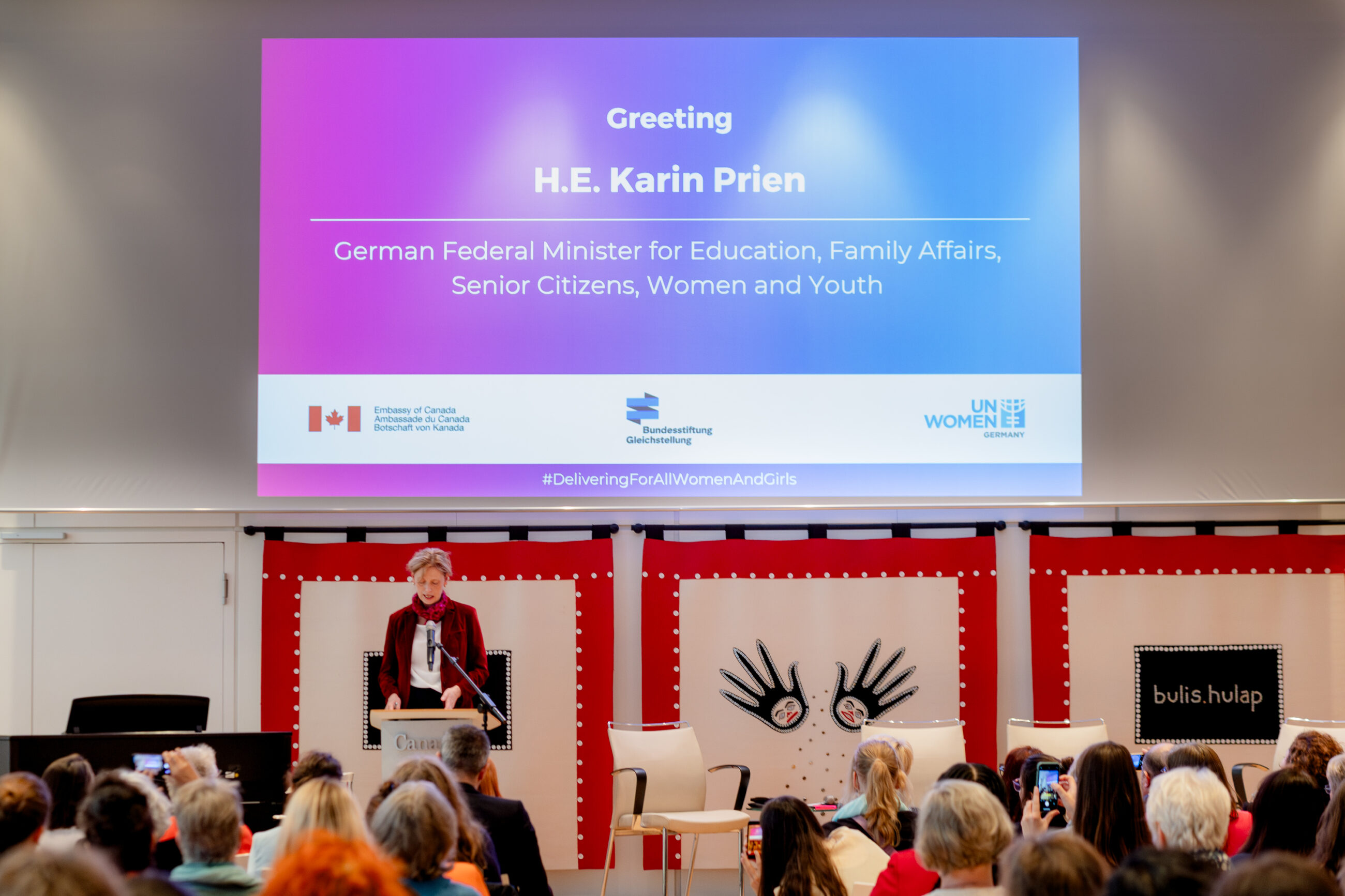
Equality is achieved by investments, implementation, and action. Investments should be seen as tangible benefits to societies and families – studies prove that when women thrive, communities thrive. Equal decision-making power generates actionable steps to build on the Platform for Action. Peace lasts longer and resilience is stronger when women are involved. The next years will define whether gender equality will advance or stagnate – it is the greatest unfinished business of our time and we have a responsibility to deliver. For this purpose, UN Women developed the Beijing+30 Action Agenda. And more than 10 years ago, the HeForShe movement.
After the break, we had a panel discussion on Women, Peace and Security (WPS) and Gender-Based Violence (GBV) as one of the many aspects of WPS. This year, we commemorate 25 years since Security Council Resolution 1325. One of the two speakers was under Chatham House Rule, so there will be no summary of their remarks but only links to information provided by UN Women. The panel was later opened into a fishbowl discussion.
Mai Ali Shatta (Founder, Bana Group for Peace and Development) reported that GBV is used as a weapon of war in Sudan and prohibited to even be talked about. Survival is the most important aspect at the moment. It is important to secure and amplify the voices of the people on the ground, as well as to fund their work flexibly. She called for solidarity with other parts of the world as well. And emphasized that European feminism is not a “one-size-fits-all model” that can be transferred to other countries without adjustments.
During the fishbowl discussion, experts from the audience joined the speakers on stage. Amongst other issues, they talked about economic aspects, and the need to work with local experts to effectively allocate, promote and secure funds and collaborations for and with local women-led and women‘s rights organisations and movements. They also mentioned how important it is to meaningfully involve girls, youth and adolescents in multinational activities – providing them with safe spaces where they can make their voices heard and highlight the issues they face. It is crucial to facilitate funding, whilst ensuring security for the girls.
Dr. Ursula Schäfer-Preuss (Vice President, UN Women National Committee Germany) summarized that the WPS-agenda is building bridges, and that we have to continue to raise our voices, to amplify other voices, and to respectfully work together. Unwavering commitment is needed to deliver on the promises made.
To round off the conference, Pianist Caitlan Rinaldy beautifully played two pieces by female composers: Cecile Chaminade (Études de concert: „Automne“, op. 35 Nr. 2) and Clara Schumann (Scherzo Nr. 2 c-Moll).
Afterwards we had a reception: to celebrate the trailblazers who developed the BdaPfA as well as its achievements, to recharge, to network, and to strategize – to counter the antifeminist backlash together.
We would like to thank our partners and all speakers as well as the audience for engaging with the topics and contributing their expertise.
Thanks also to LUYA Kidscorner for providing childcare and Aleksandra Schreiber and Mari Vass for documenting the event so skillfully. You can find all photos on Flickr (credit: Mari Vass/UN Women Germany) and some insights into the conference in our B+30 Instagram highlight.
